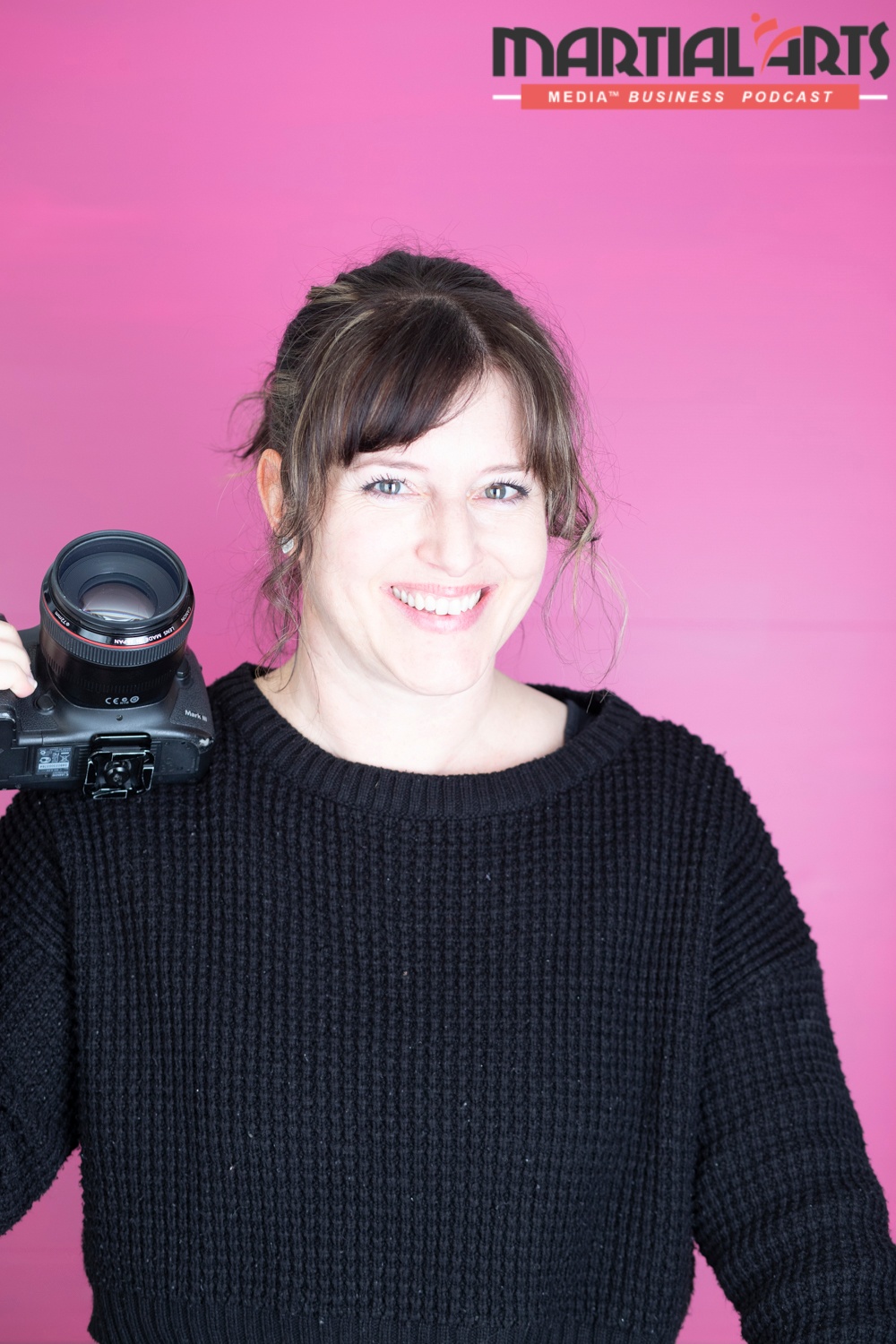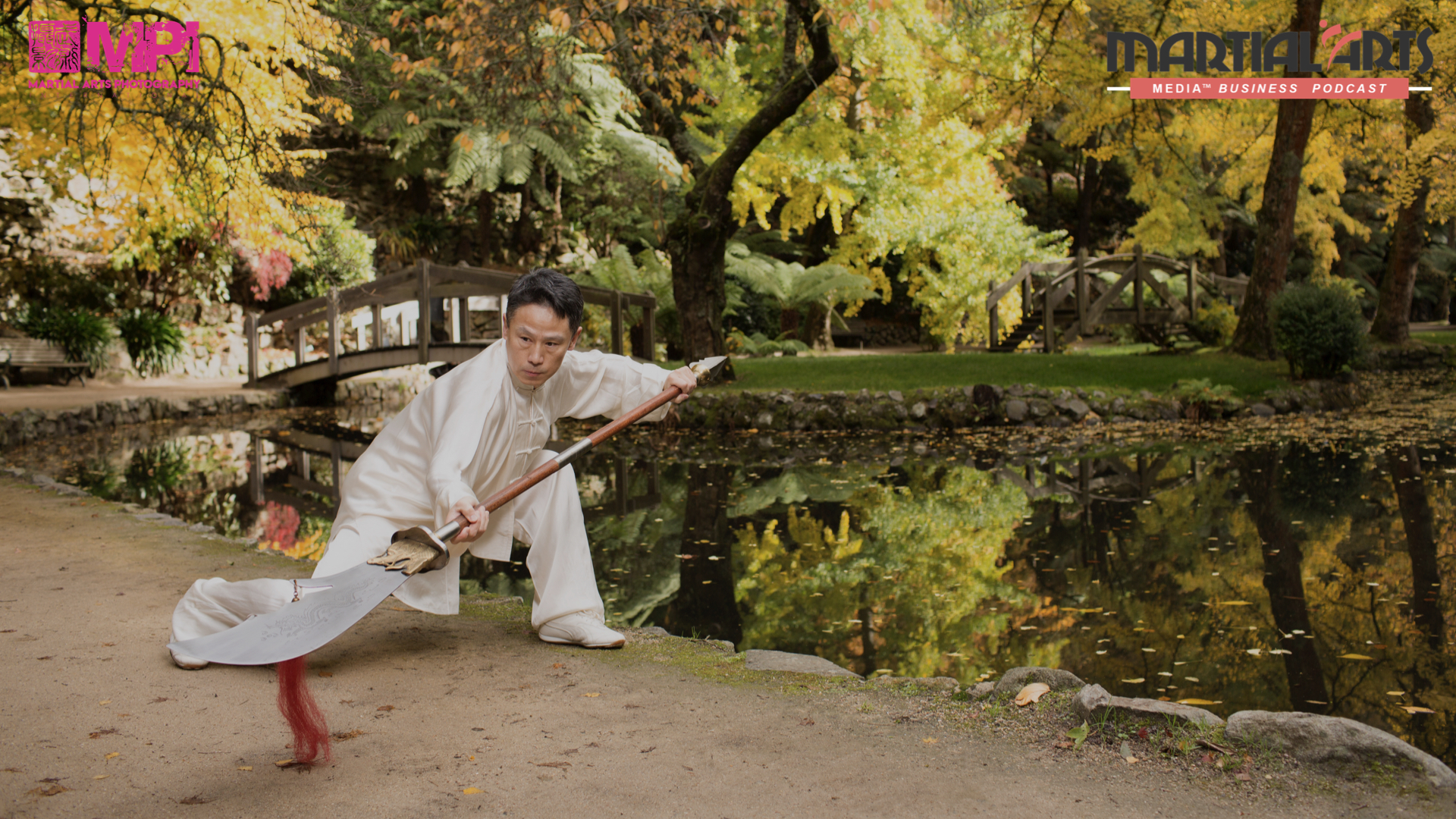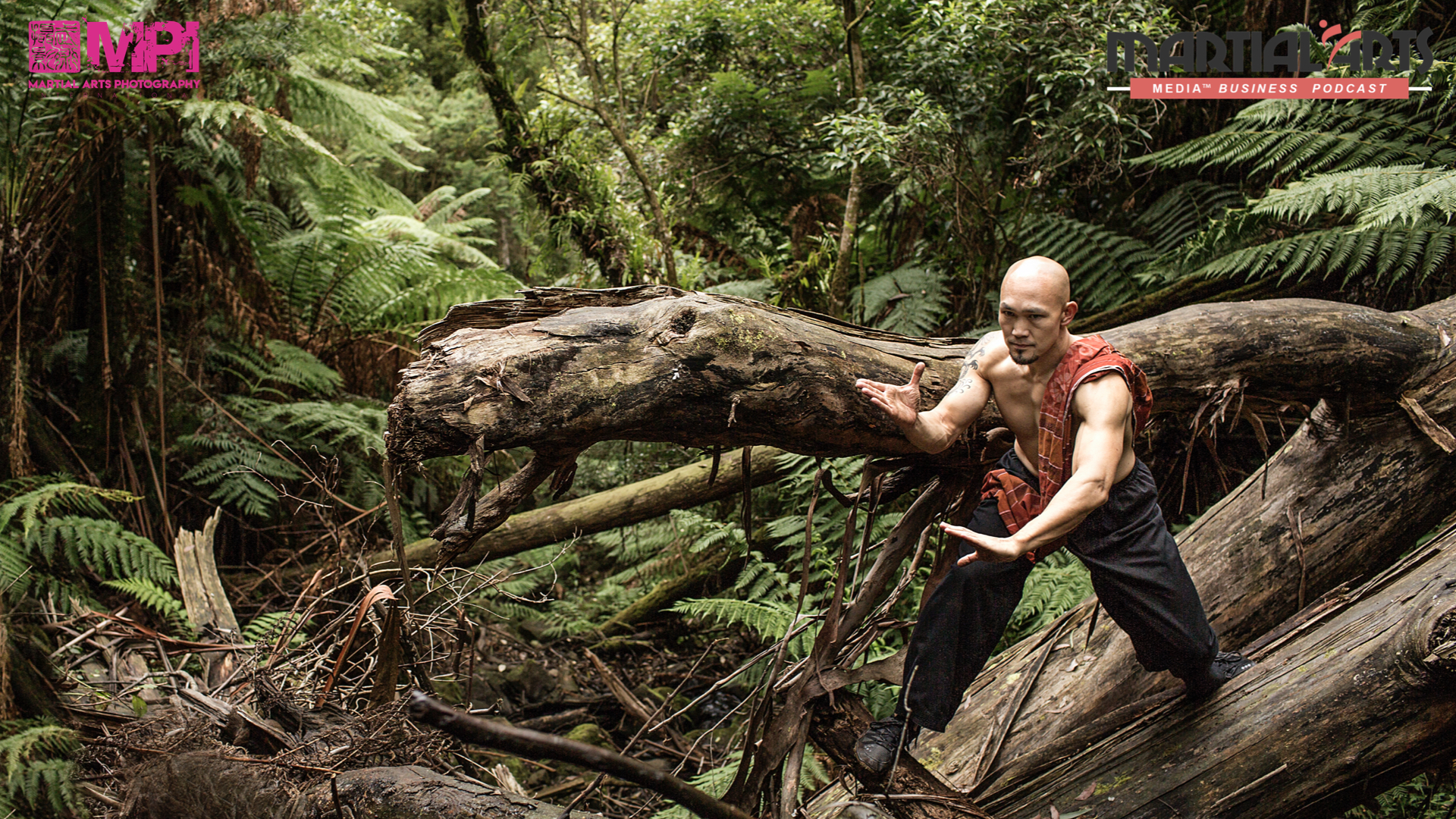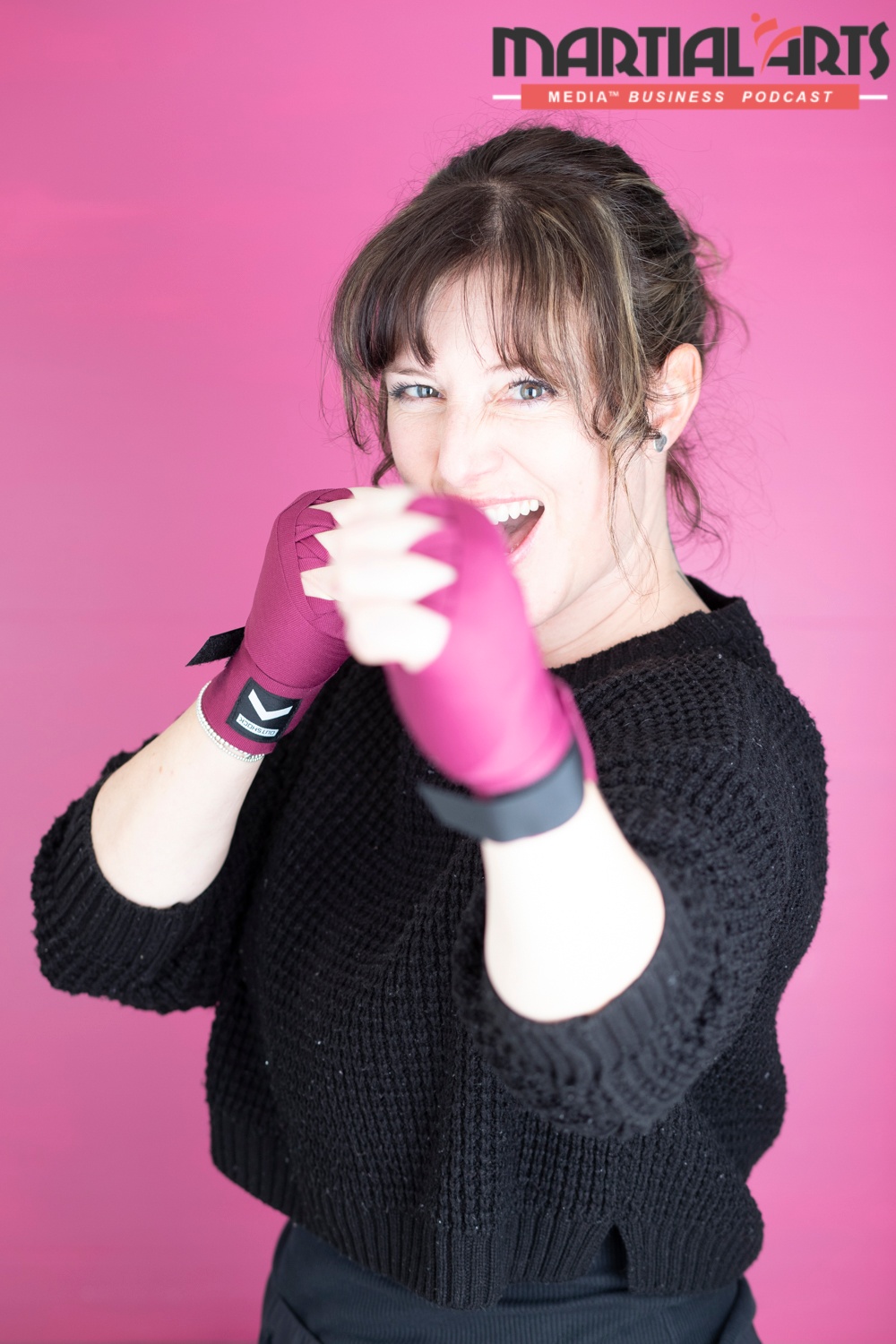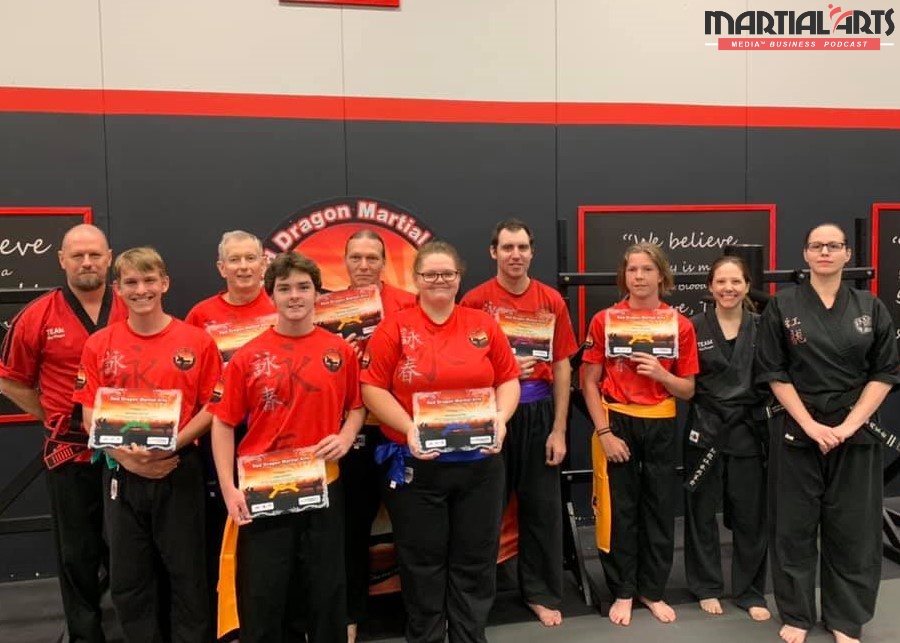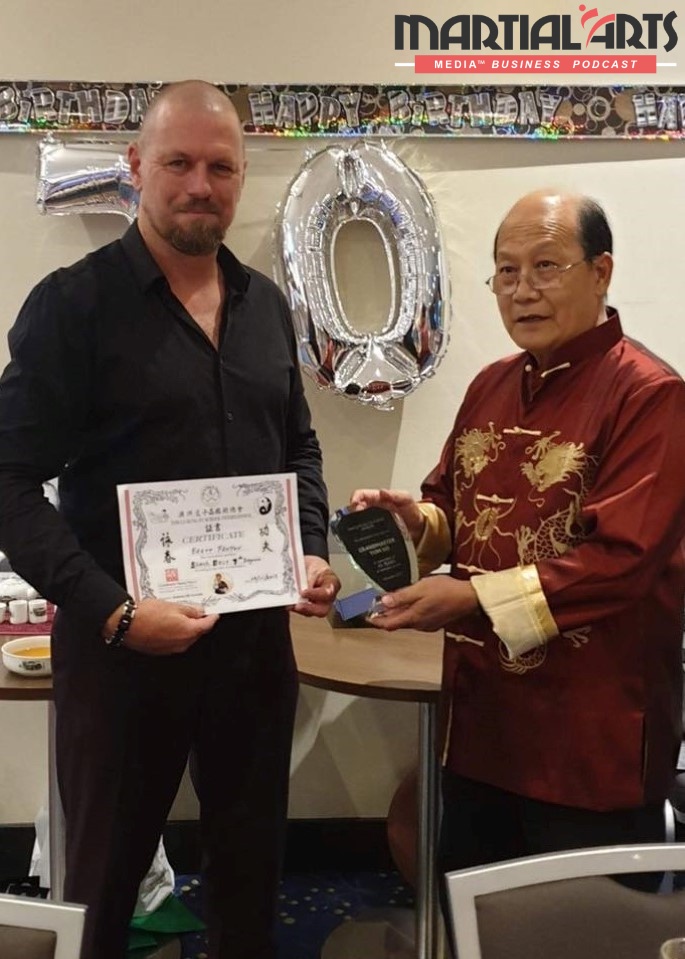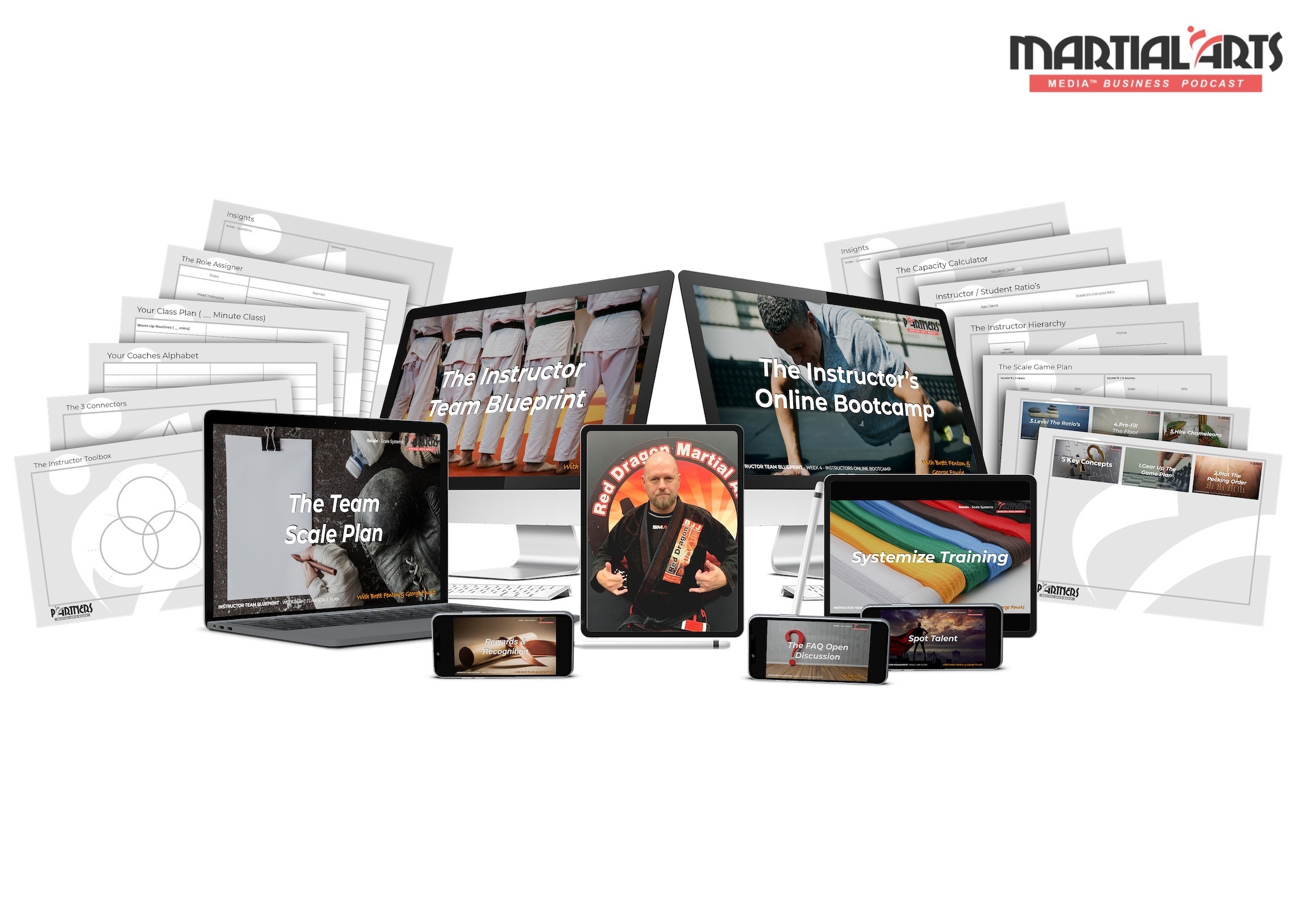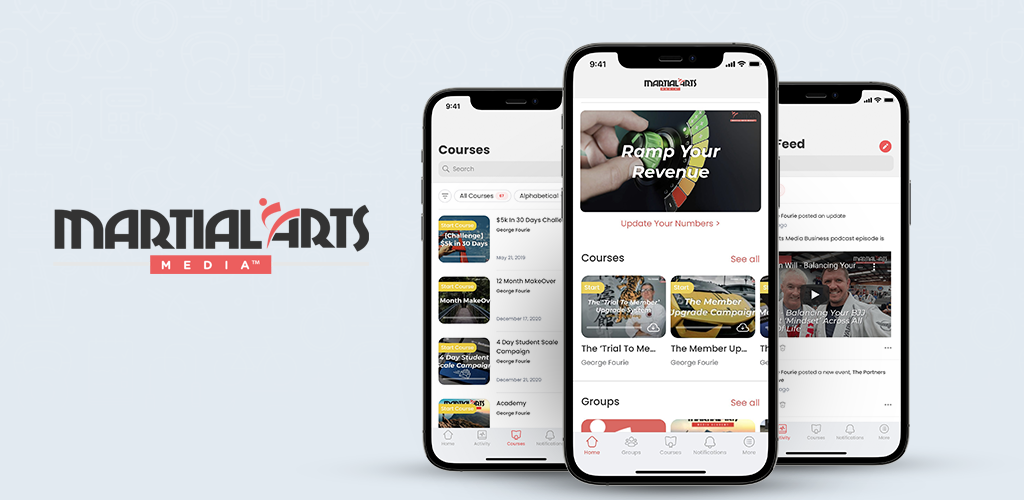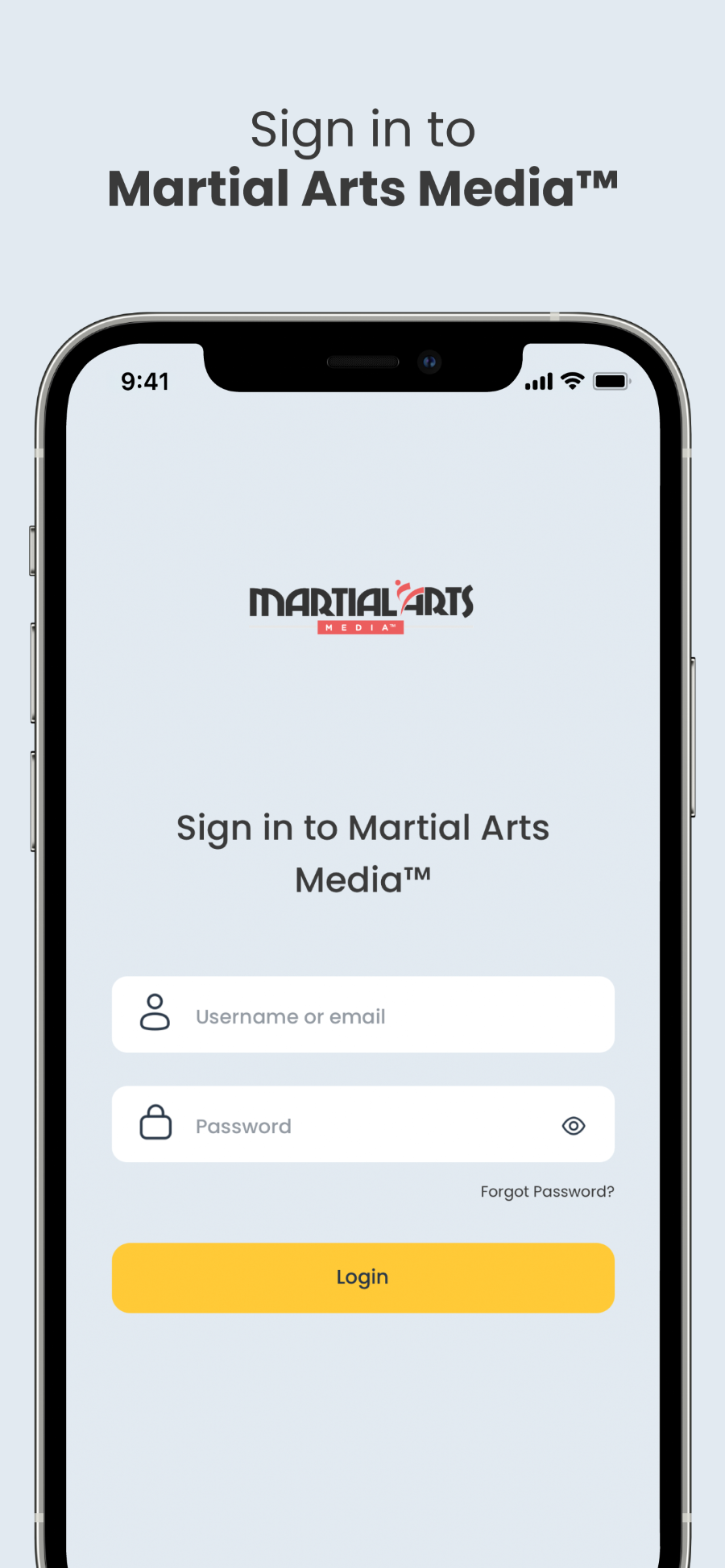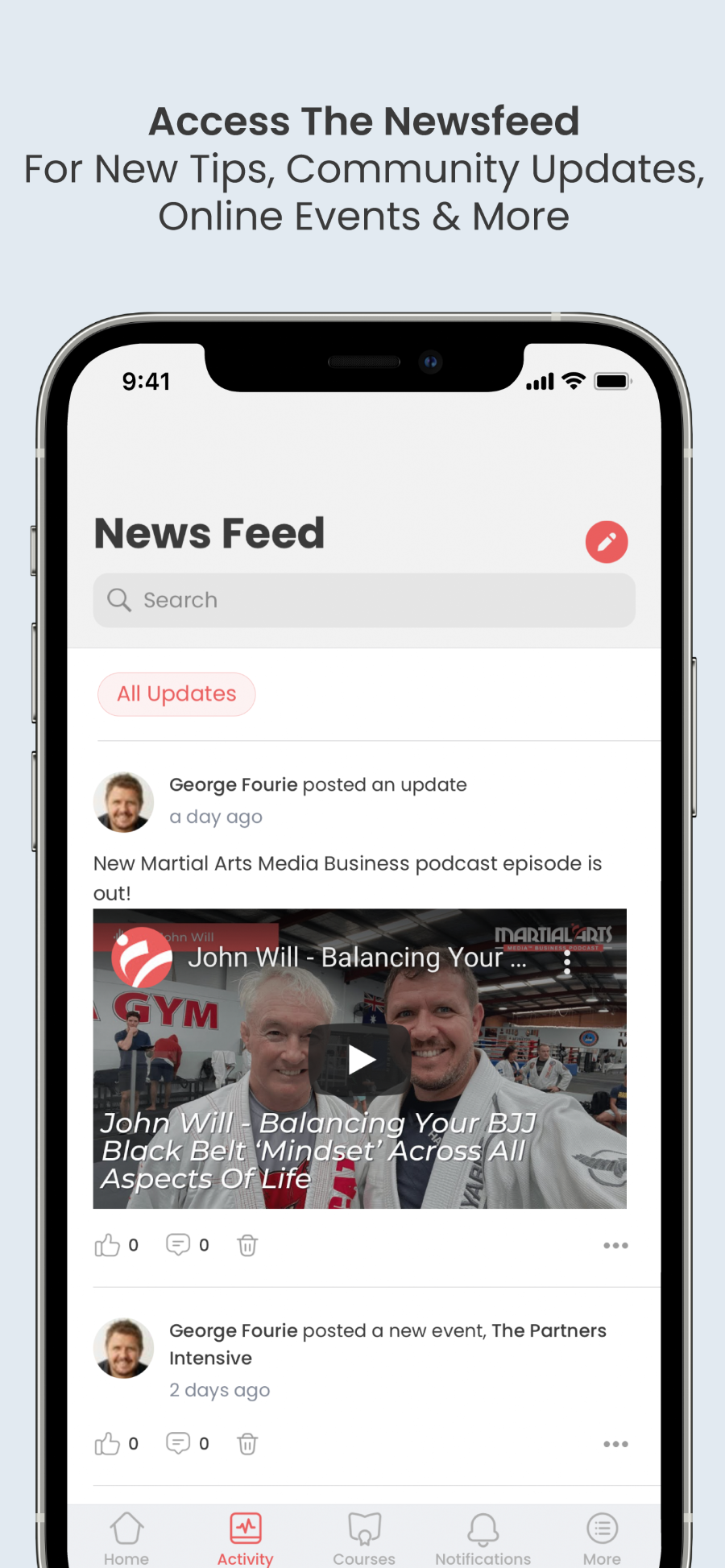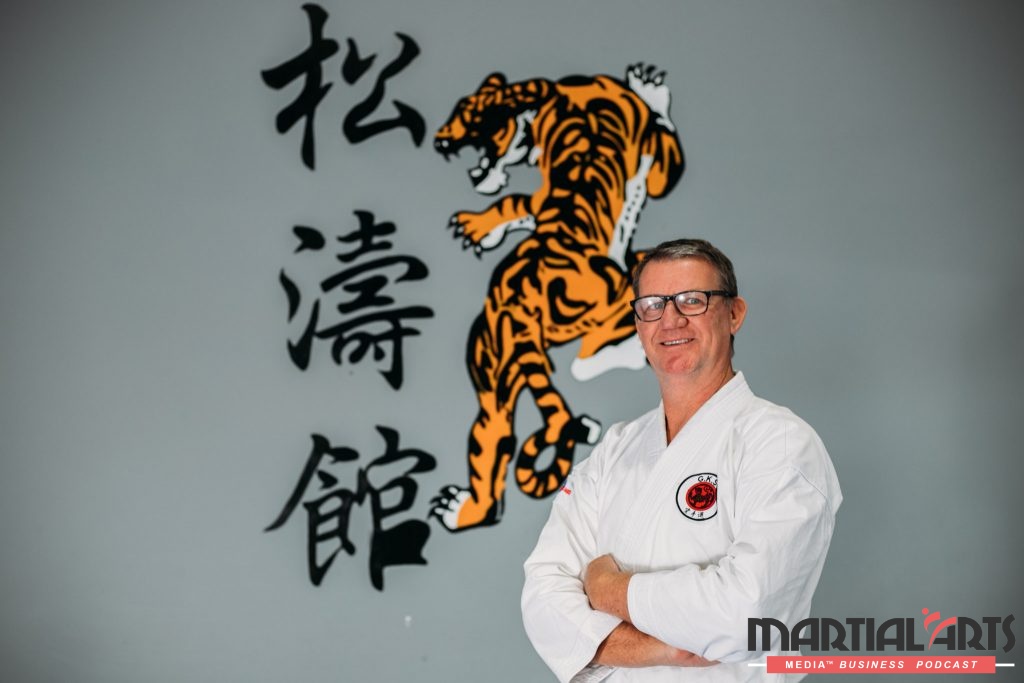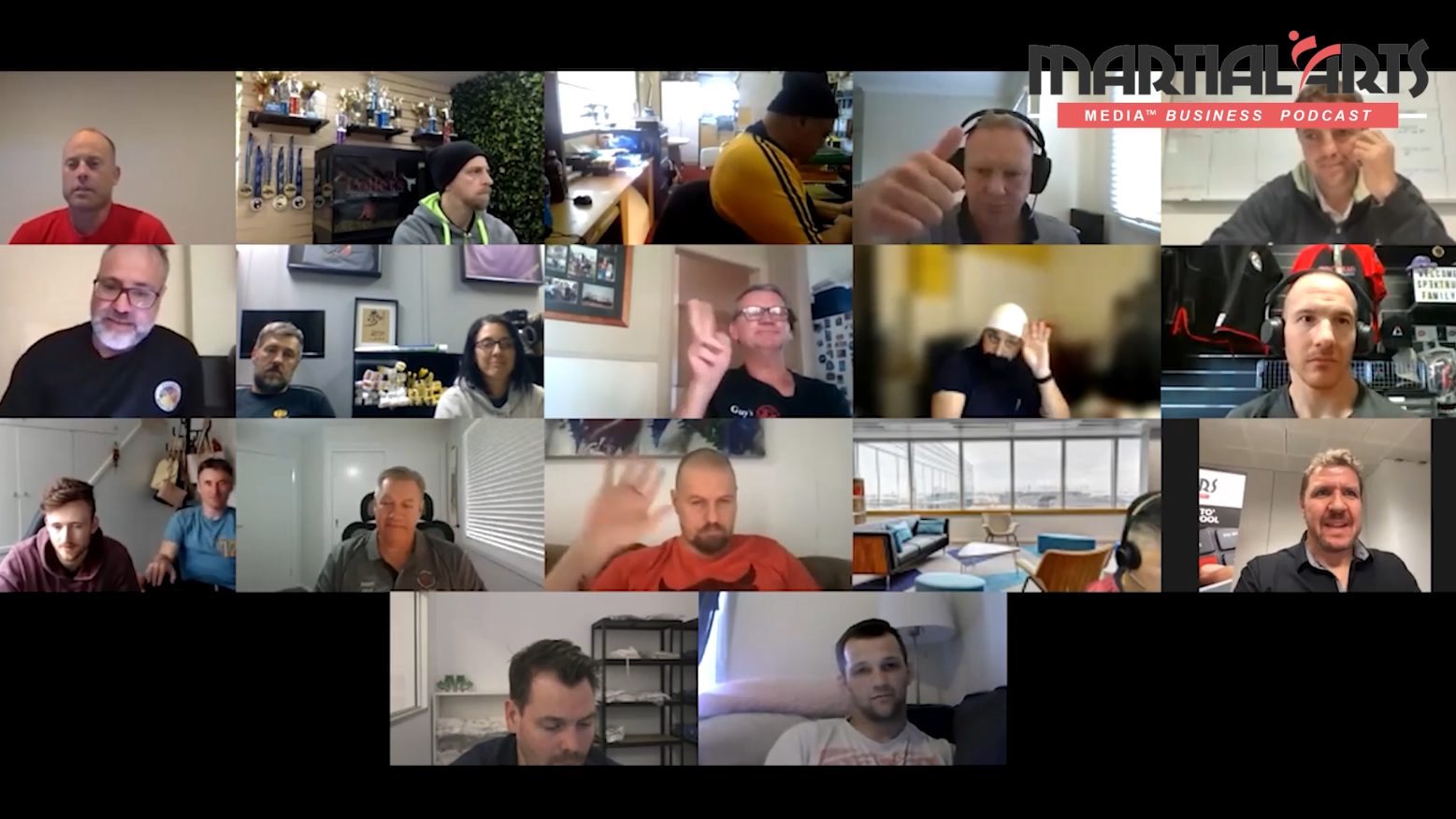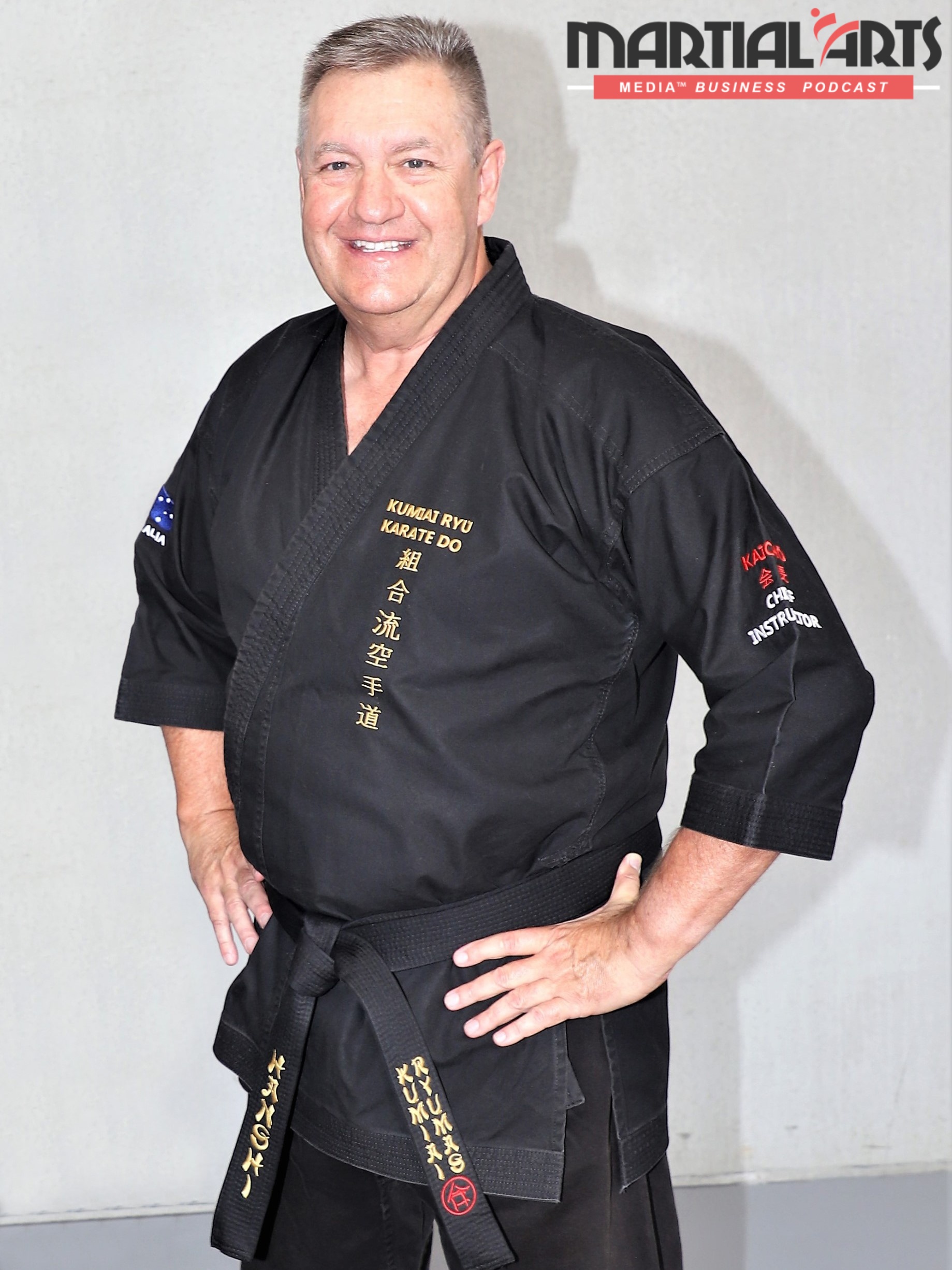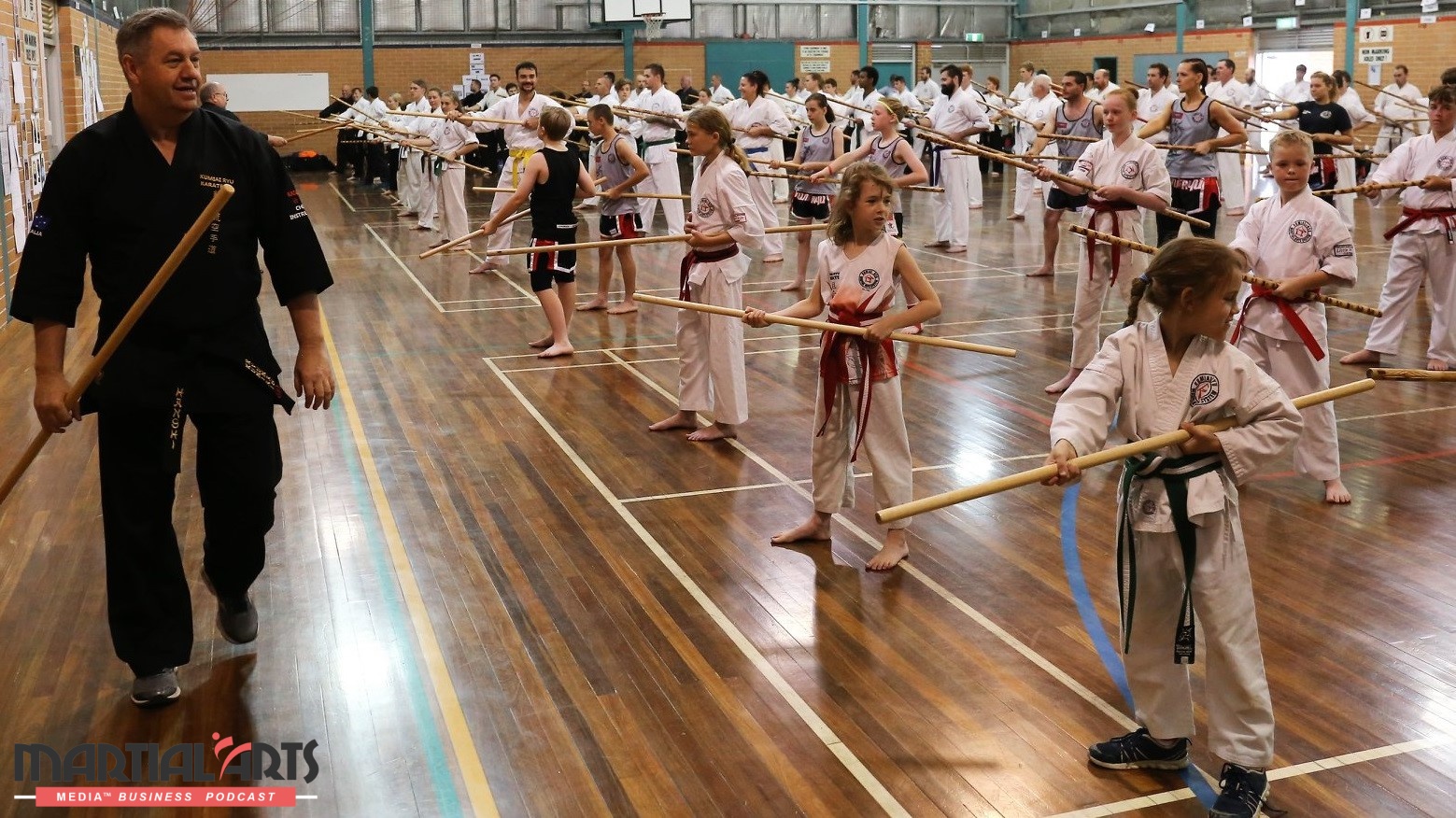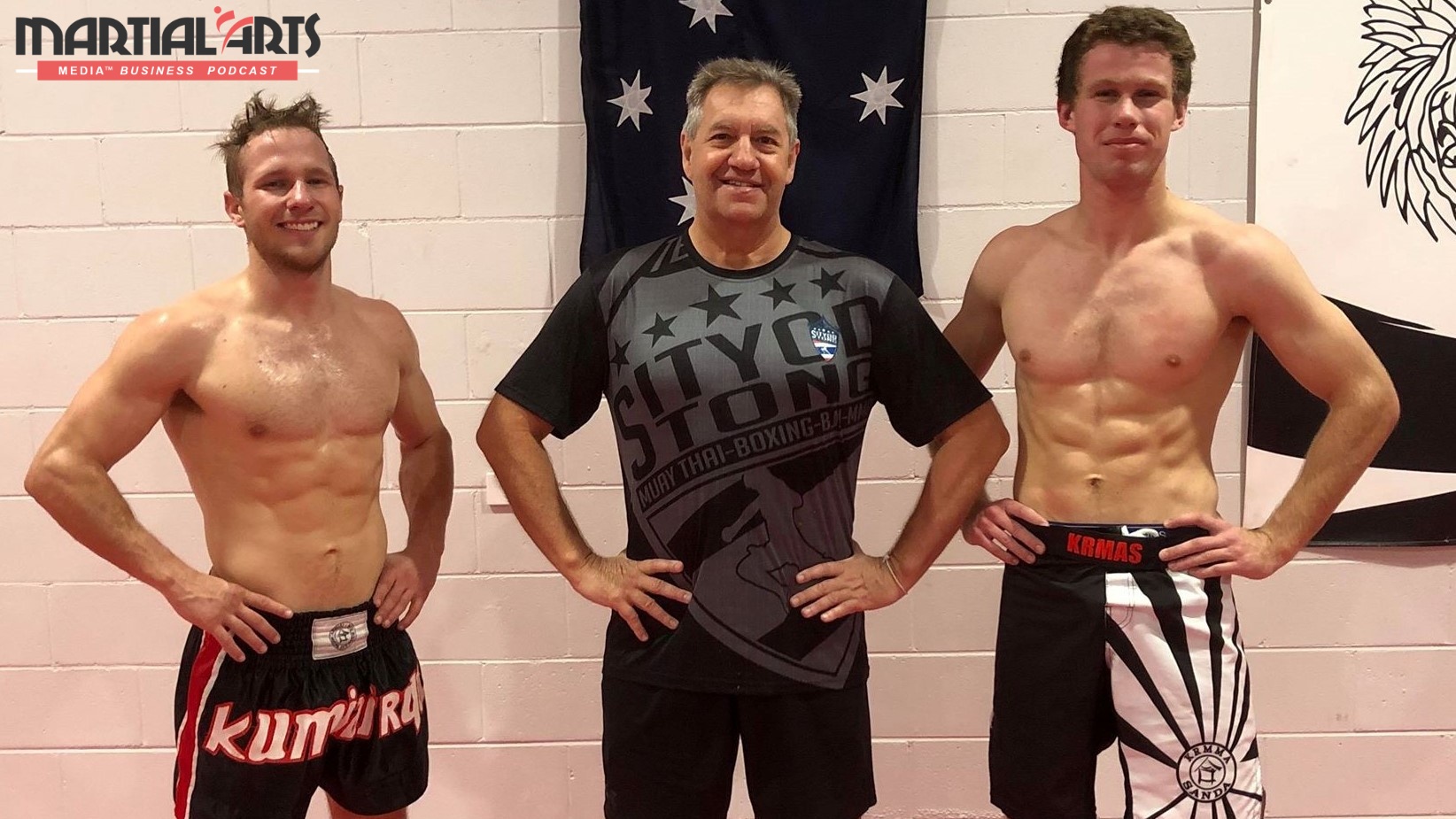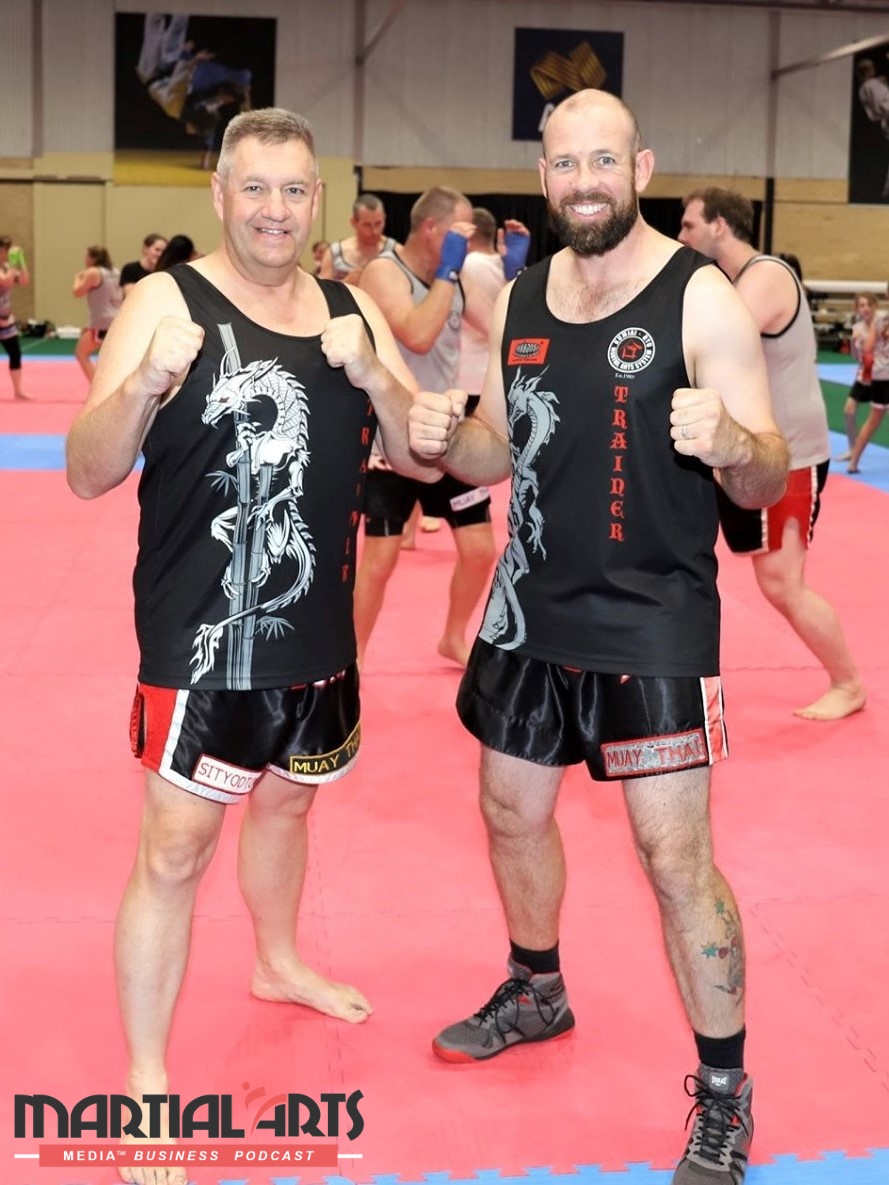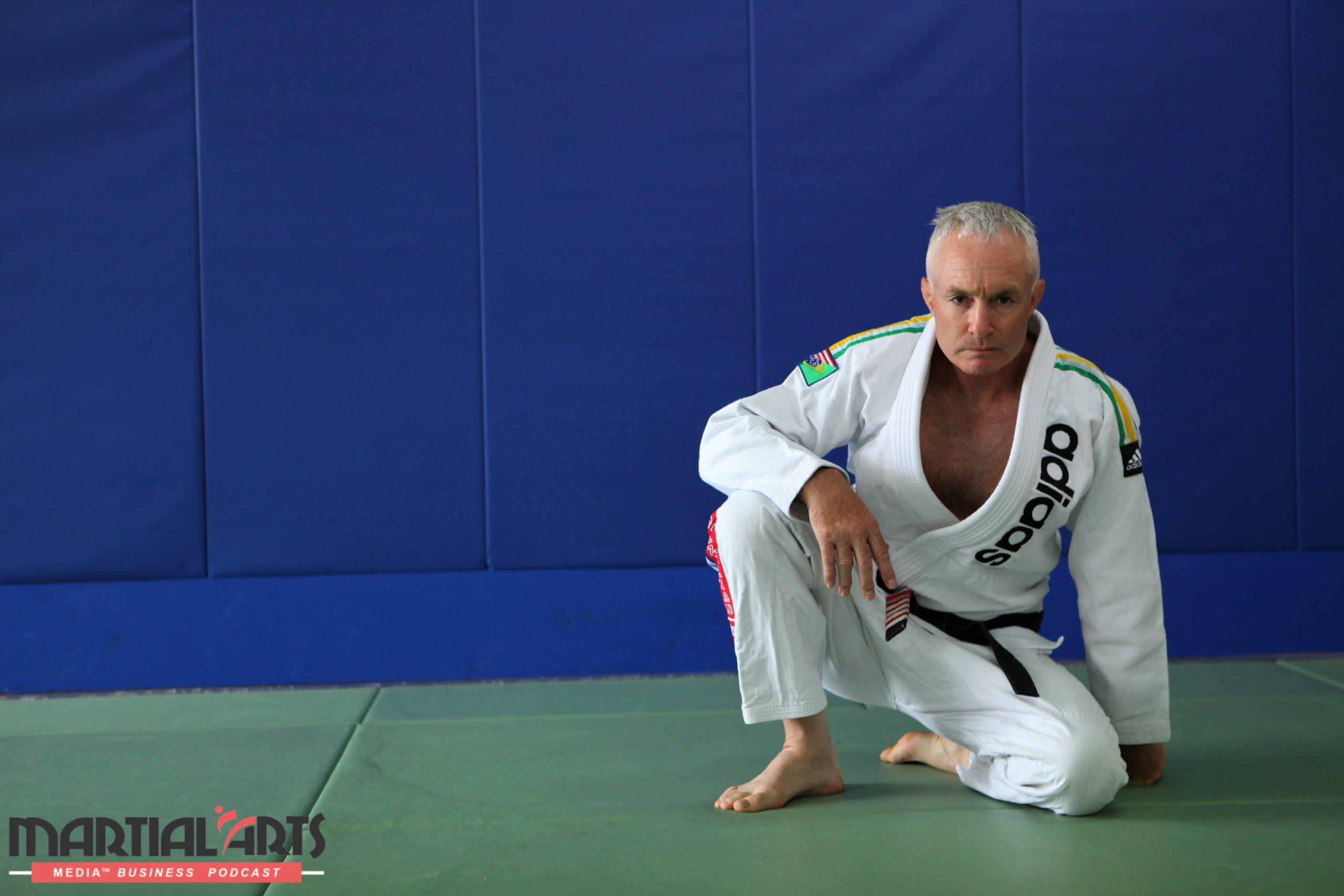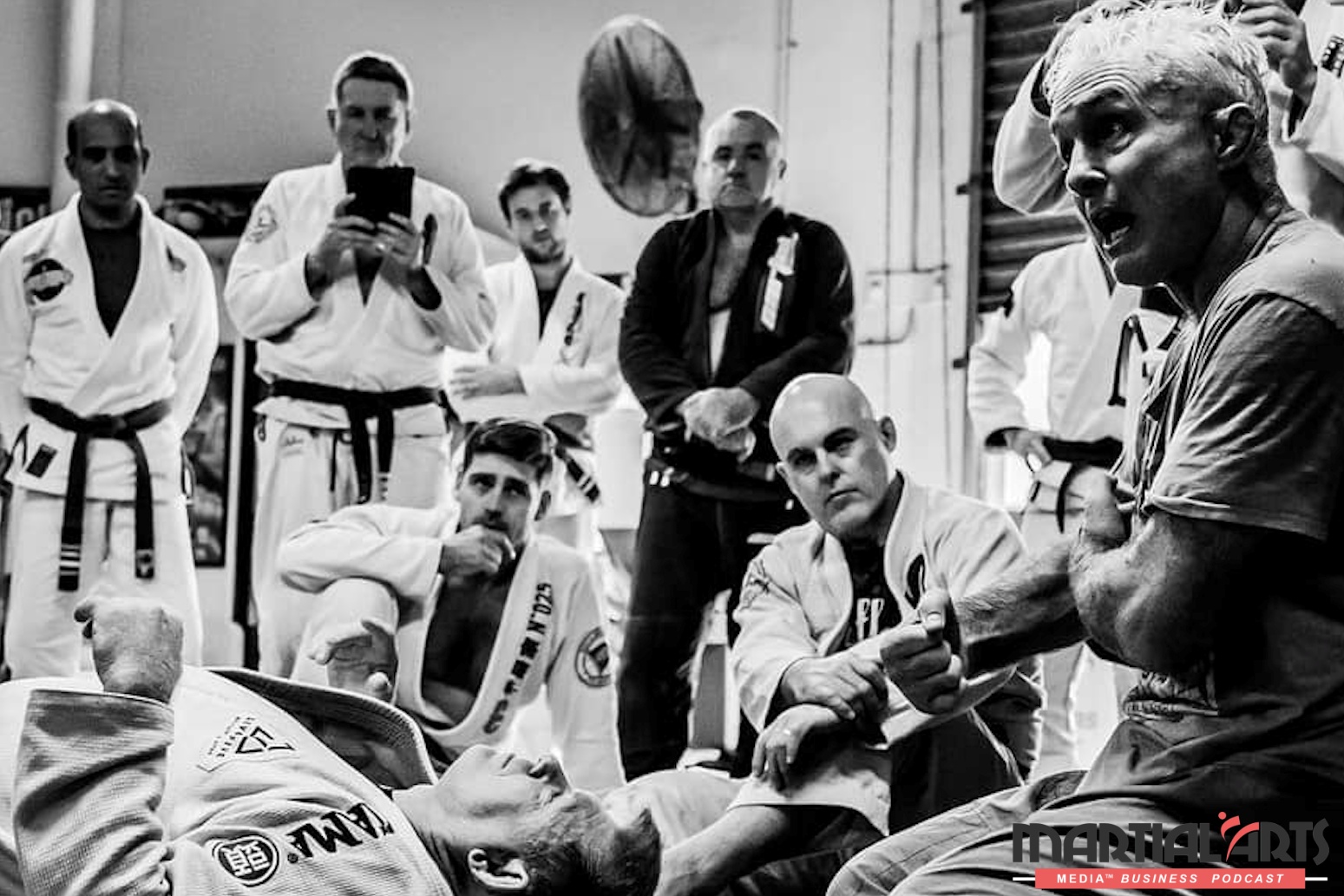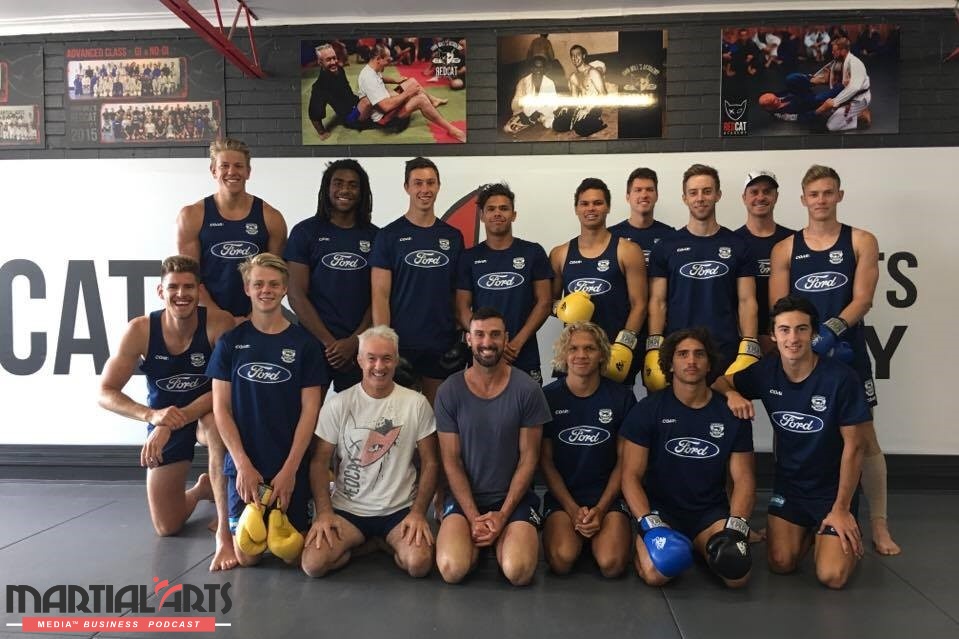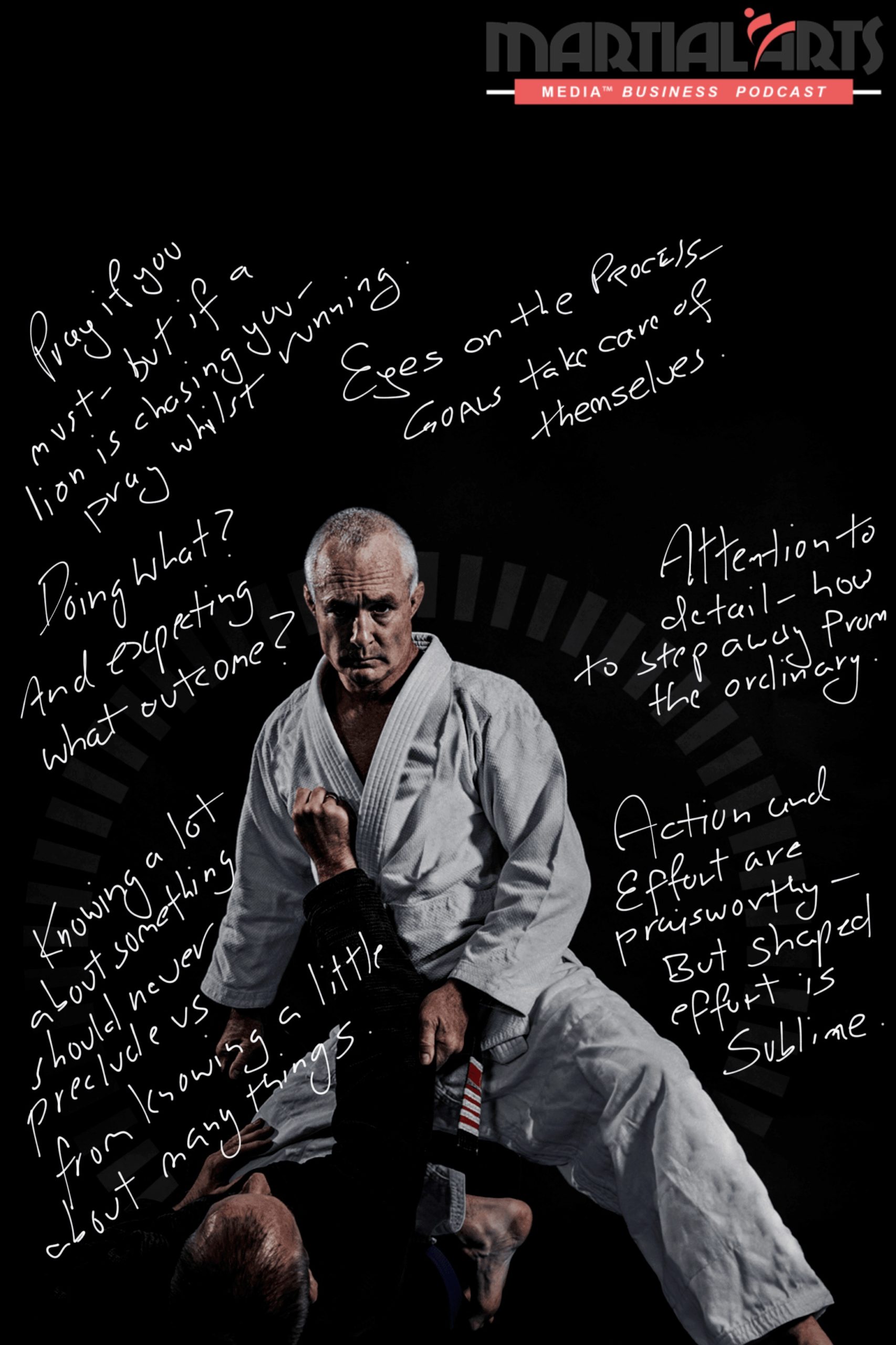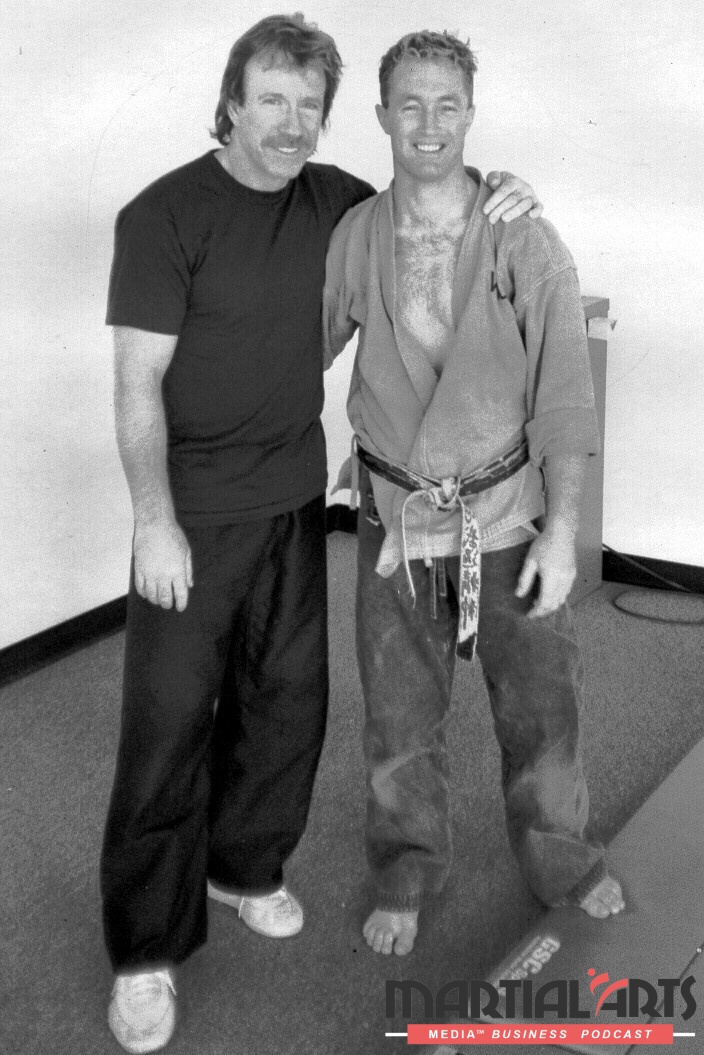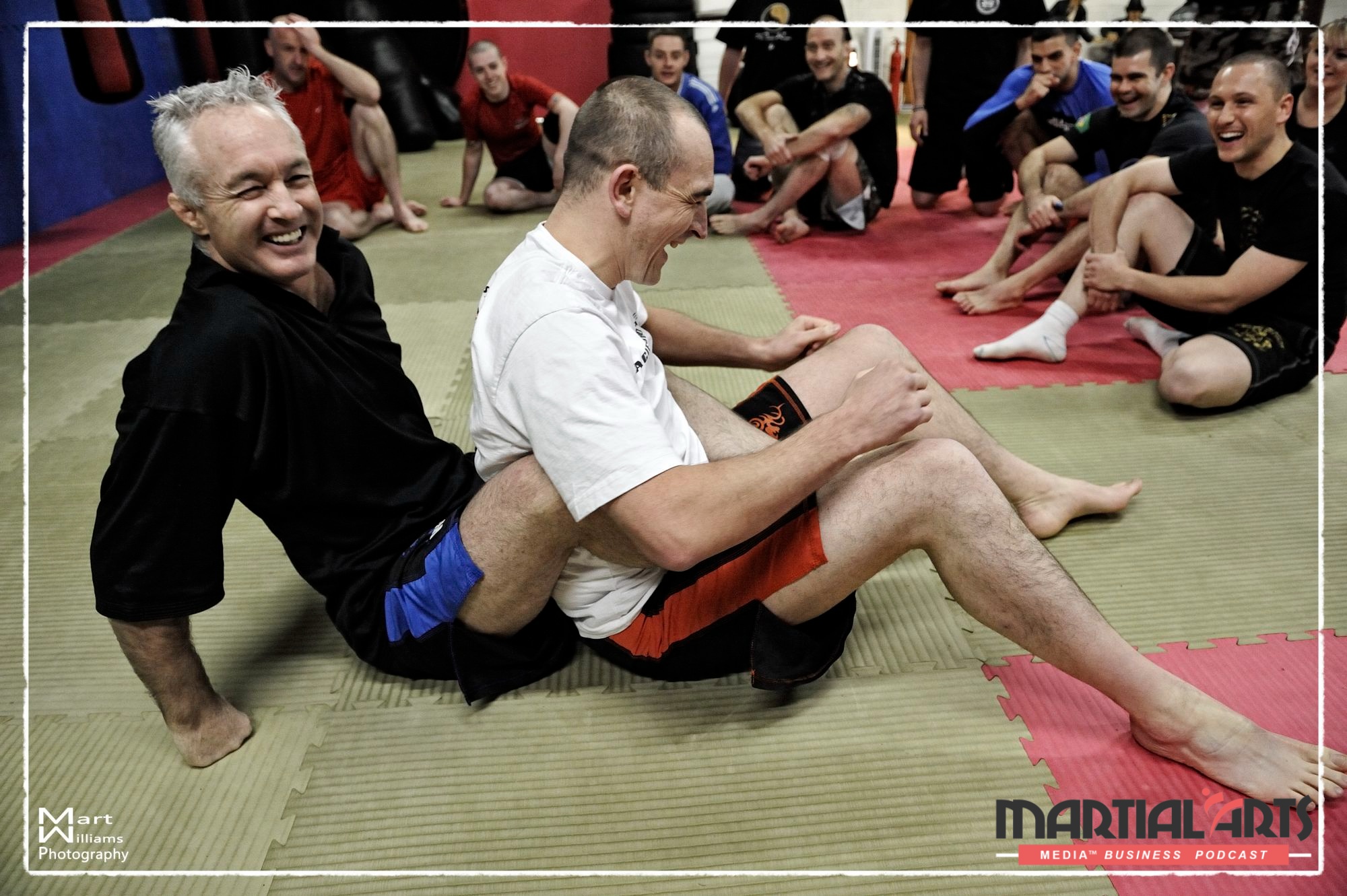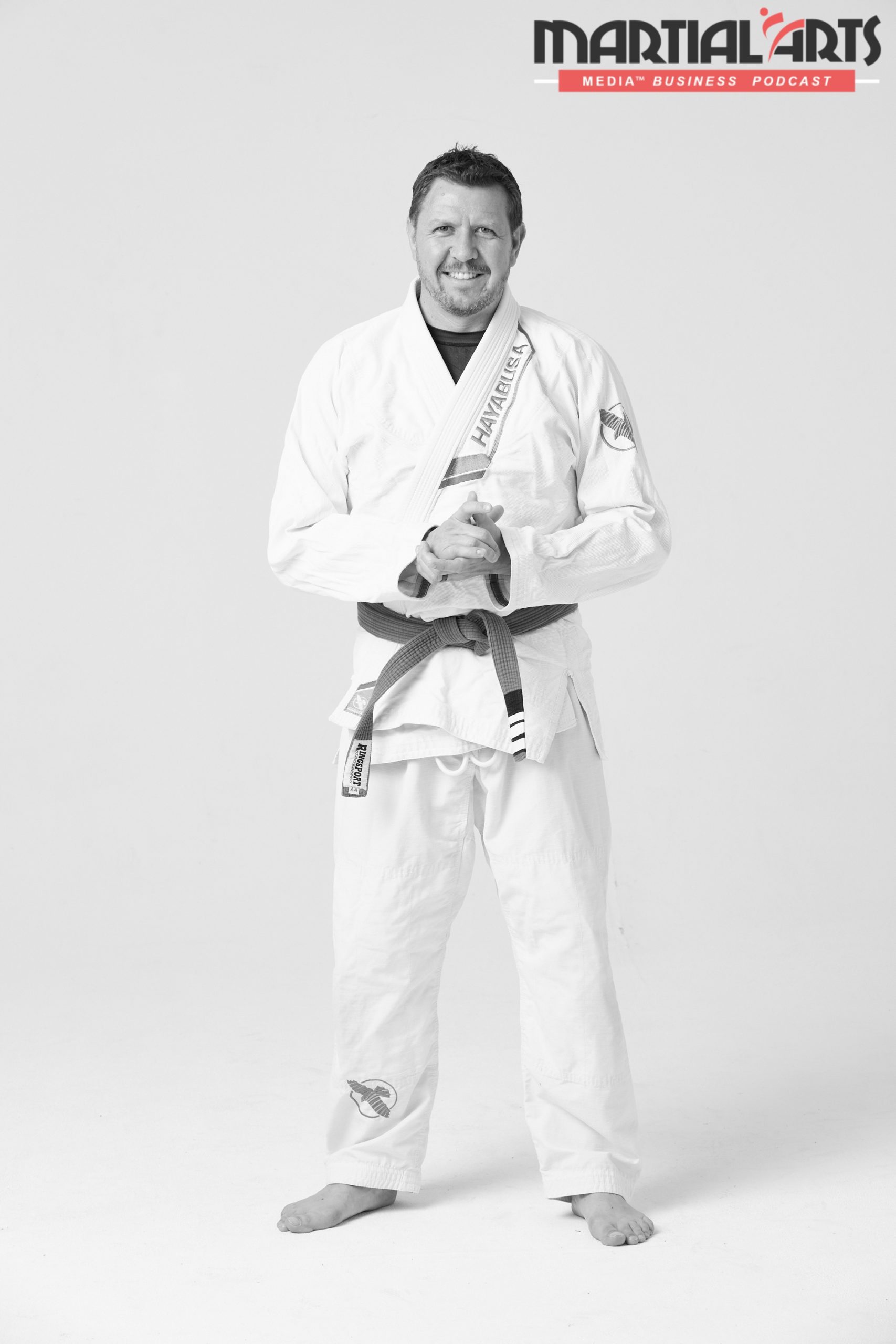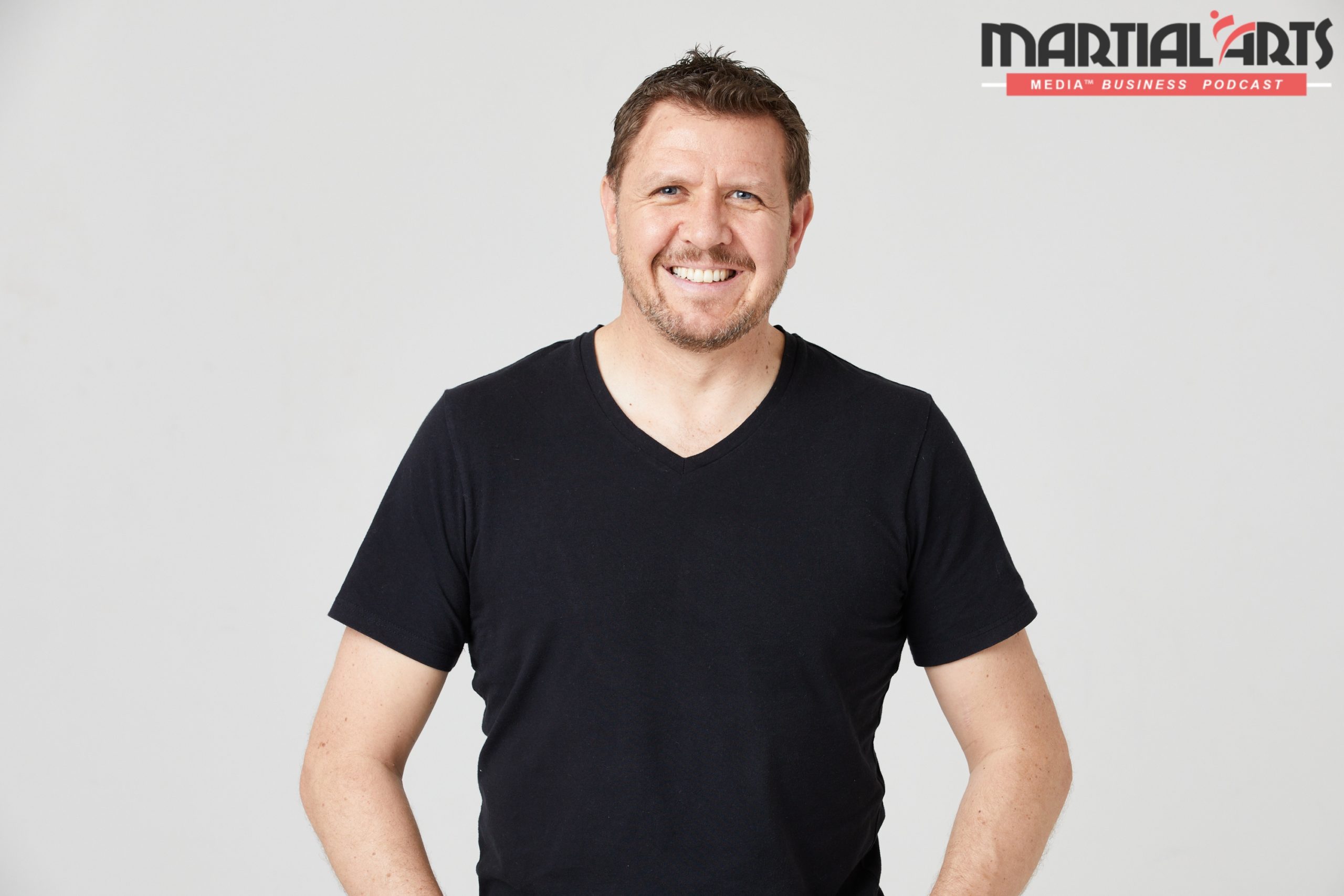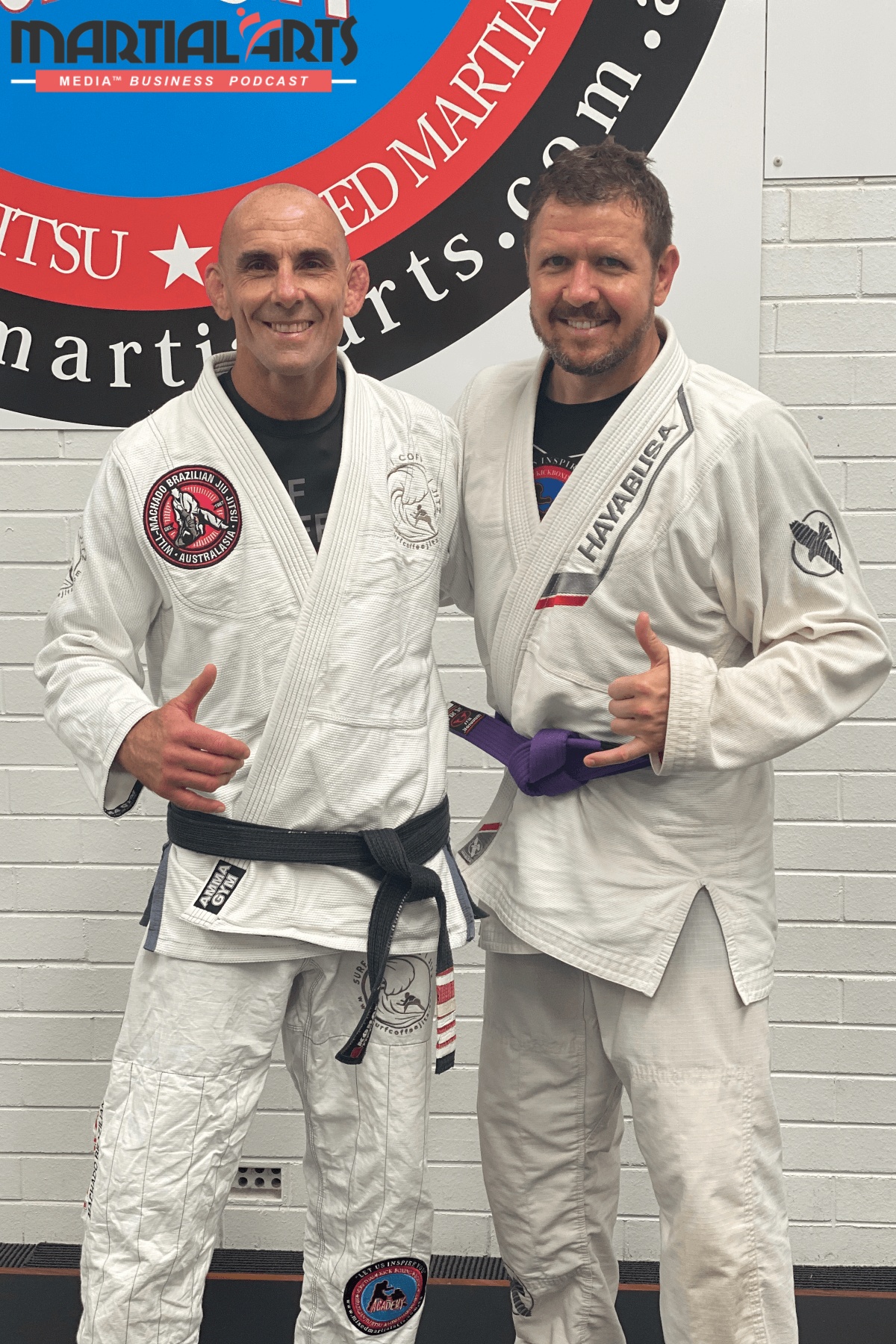Cheyne McMahon and George Fourie discuss overcoming a somewhat outdated, old-fashioned, traditional mindset that’s holding many martial arts businesses back.
IN THIS EPISODE:
- Original, traditional karate charged at premium prices?
- How to raise prices and still keep your students
- Been called a McDojo?
- Martial arts fees based on value vs time
- Growing from 110 to 350 karate students
- And more
*Need help growing your martial arts school? Learn More Here.
TRANSCRIPTION
I think as instructors, maybe people try to be that person on the pedestal and be that person that they want to be, but they can't because it's not ingrained in them. But if people perceive them as that person, perceive them as, oh, my sensei does it for the love of karate. Well, yeah, we all do it for the love of karate or the love of the martial arts. If we didn't do it for the love of martial arts, we wouldn't do it.
GEORGE: Hey, George here from martialartsmedia.com and welcome to the Martial Arts Media™ business podcast. I've got a repeat guest and I think I just discovered the record breaker of repeat guests, record breaker, Cheyne McMahon, third time on the show, I believe.
CHEYNE: Yeah, that's right. Thanks for having me, George. Again.
GEORGE: Cool. Welcome back. We used to introduce Cheyne as Cheyne McMahon from Australian Karate Academy, but now we'll add to the introduction Cheyne McMahon from Australia Karate Academy and the Karate Over Coffee Podcast. Cool.
CHEYNE: That's it.
GEORGE: Cool. We're going to talk about that, but Cheyne and I were chatting a week ago, so I'm going to put some context to this conversation. This might turn into a bit of a rant, I don't know, possibly, but it's going to be something that you really want to listen to, if you are struggling with growing your business, your martial arts business.
We're going to focus on karate, but I see this overlap in martial arts school owners I've talked to that do jiu jitsu, Kung-Fu, Taekwondo. I don't know if it's a generational thing, but it's a problem. And we're going to take it head on.
And I hope you get a lot from this. And if you have felt anything similar in the circles that you hang around, in the martial arts community and I hope this helps because this is the one thing that I see holding school owners back the most.
As you guys know, if you listen to this podcast, I work with a group of school owners, we call Partners. And we promptly help school owners attract the right students, increase signups and retain more members. A lot of people always reach out and say, “Hey, we want help with our marketing.”
The first… I think the one thing that almost 99% of school owners always come to me for is, “Hey, we need more students.” That's always where the conversation starts. But what I've really noticed of late is, it's almost never the problem.
It's almost never the problem. It's not. Yes, it is the problem, you need more students, but it's not the root cause of the problem.
It's not the marketing. It's not the, we need the latest trick. All those things are relevant. The problem goes way deeper than that. And it's mindset and mindset around money. Mindset and mindset around money. And I think this is the biggest thing that's holding most school owners back, especially, we're going to talk about karate, traditional karate, and beliefs around money and how to overcome that.
Cheyne, let's just talk about where you're at right now with your school and from where I sit. I think if we talk about traditional karate, I think that Cheyne lives and breathes karate, like someone I've never met in my life. It's seven, eight hours a day. It's karate, it's talking karate, it's teaching karate, it's learning karate.
And then, when you look at his school, if anybody has a label, throw those… What's with those dodgy labels like McDojo or things like that? If anybody has to do that, they need a bit of a reality check. But not that anything that we're talking about is wrong, but if we talk about purists, Cheyne does karate. He doesn't add other classes, there's no Muay Thai, there's no kickboxing, it's karate. There's no birthday parties. It's karate.
Everything is just centered on this one, the core of what Cheyne lives and breathes. I'll hand it over to you, where's your business at right now? How does it look and so forth?

CHEYNE: Yeah. Well, at the moment, student-wise, we're in the 340 to 350 mark in the one dojo. We have a dojo in Sydney as well and he's looking around the 150 mark. But karate-wise, I've never moved away from teaching the best quality karate that we can offer.
Everything is based around our style of karate. We teach the little kids, the kinder ninjas, but we kept those numbers. We have kids and we have many adults as well.
We'd be close to 150 adults in our program and that's not teaching anything other than traditional karate, karate and Kobudo, the weapons. Everything is geared around learning, understanding traditional karate. The dojo has gone, we have to keep expanding the dojo to have everybody in there, which is a great problem to have, but it doesn't mean that we've watered down any of the karate.
In fact, our karate has gotten better and better over the years because I've been able to… Instead of working a nine to five job and then coming and teaching karate, I've been able to focus everything on understanding more about karate, because I've got, not free time, but I've got allocated time during the day, now, for example, to spend on understanding more about karate and reading books about karate, reading internet forums about karate, watching videos.
I can spend a couple of hours a day just doing that and incorporating that into the classes, instead of going nine till five at a job and then having to teach, two, three hours after, a couple of days a week. Everything is geared around karate and karate getting better. Learning more about the oldest style of karate, traditional karate.
GEORGE: Perfect. When it comes to fees, would you say that you are the cheapest in the market or more sort of the most expensive, when it comes to fees?
CHEYNE: Well, I'm the most expensive, yeah, in my area. If you look at the karate schools around me, I'm definitely the most expensive, but I have the most available times. I've got a big training area, I've got toilets, change rooms, air conditioning, and new flooring.
I am the most expensive, but not only that, my family have been doing karate for a long time. I charge the most because I deliver the most and I consider my karate to be the best. That's why, if you walk into a Mercedes dealership, you know you're going to be paying Mercedes dealership price.
If you walk into a Kia dealership, then you're going to pay a Kia price. The Kia salesman may be wearing a tie or they could be wearing a polo, nothing wrong with that. But if you go into a Mercedes dealership, they're wearing cufflinks, they're wearing tailored shirts. The tiling on the floor is a hundred dollars a tile, the Kia dealership is $10 a tile, so you get what you pay for.
GEORGE: 100%. I've framed the word expensive and fees and cheap and expensive, but really what it comes down to is, and you've answered that is, you are priced based on your value. You are priced based on your value and not on just the time or so forth.
CHEYNE: Yeah. We also have… The mandatory time is twice a week. The minimum time for you to train is twice a week. If you're after a once a week class, then I'm not the dojo for you. I'm only looking for serious students who want to do serious karate.
If you're interested in just doing once a week at a community hall, no problem, I will send you there and I'll give you the instructor's name, but for me, and the way that I want my club to be, it's a serious karate club, where we teach serious karate.
GEORGE: All right. Let's talk about why you feel that traditional… Let's start with your background and, if you're listening in a different country, or you've got a jiu jitsu school, TaeKwonDo, it doesn't matter, but we're going to go from Cheyne's experience, draw from Cheyne's karate experience, talk about traditional karate.
When you speak to other school owners, traditional karate and so forth, where do you see the problem with them getting to the level that you're at?
CHEYNE: I think it's a mindset from their previous instructor. It can be a preconceived idea that if you teach martial arts, you shouldn't make any money. Whereas in reality, in karate, I'll give you just a quick background story.
When Japan came over and took over Okinawa, all of the martial arts that were taught were in the Royal, there were 39 families, I think, something like that. 39 families and that's where martial arts were created.
When Japan came over and took over Okinawa, those families had to leave the palace or they were made redundant more or less. They had to go and teach or they had to go and make money. And these guys, the only things that they knew how to do was read and write. Some became writers and other people, all they knew was karate, for example.
They would go on and teach karate for money because that's how they survived. And that's when… For people to think that karate instructors shouldn't make any money, they were doing it 150 years ago, whereas people just don't understand that.
GEORGE: Where did this belief then… How did it infiltrate the modern, in our times today?
CHEYNE: George, I don't know, mate. Maybe it was the Karate Kid. I honestly have no idea, because if you look in the sixties, seventies, eighties, and I'm only just talking about karate because that's all I know. We were bringing Japanese instructors to Australia, paying them money for us to learn karate, and then we would turn around and not charge our students.
It may be an ideology that we want to be the samurai who doesn't make any money. We go from village to village and you pay me in bread and you pay me in water. I honestly have no idea.
It's that whole humbleness or the humility in karate or martial arts in general that we try to… Not BS, but yeah, probably BS about what really karate or martial arts teachers are. I say this a bit…
GEORGE: Say it.
CHEYNE: But I don't know, if you're an asshole outside of karate, before you learn karate, then you're going to be an asshole learning karate.
But I think as instructors, maybe people try to be that person on the pedestal, be that person that they want to be, but they can't because it's not ingrained in them. But if people perceive them as that person, perceive them as, oh, my sensei does it for the love of karate. Well, yeah, we all do it for the love of karate or the love of the martial art. If we didn't do it for the love of martial arts, we wouldn't do it.
And there's that whole idea that my sensei, or even instructor… My sensei doesn't make any money out of karate, he does it for the passion. Yeah, well, how is he paying for the rent? How is he paying for insurance? Of course, everybody charges money, but yeah, to answer your question, mate, I don't really know, but I would think that's where it would stem from.
GEORGE: And does he show up 100% devoted to teaching your class or does he show up halfhearted, because he knows that when he walks out here, there's a whole bunch of other problems to deal with that's money-related?
And so there's half a commitment. Intentions are pure and so we're not talking about intentions here, because I think the intentions are pure, but what baffles me is that money sometimes, this ingrained and maybe ancestral belief about money that's genetic, carries over and somehow when someone's more successful in martial arts, let's throw them under the bus.
And it's spoken about a lot, the crab in a bucket philosophy. If you put a bunch of crabs in a bucket and you watch them try and get out, one, they never get out because one just pulls each other down. And I mean, I've lived in Australia a long time. I don't know but I've only experienced martial arts…
Well from the start, mostly in Australia, other than speaking internationally and speaking of other cultures and so forth. I don't know if it just stems mainly from Australia, but no, it doesn't, I'll correct myself.
CHEYNE: Definitely not. Well, I see a lot of instructors who have 50 students and they always ask you, how do you get more instructors? How do you get more instructors?
But it's not getting… Sorry, how to get more students? How do you get more students? But it's not about getting more students, it's about, you've got to set the time aside to get more students. You have to have the times available for those new students.
If you're only Monday and Wednesday for an hour, you're only going to get a small percentage of people who have those times available. Instead of thinking, if you want to grow your dojo to be something that is a full-time dojo, then you've got to be a full-time dojo. You can't expect to be a full-time dojo running two or three times a week.
GEORGE: And juggling three other jobs to…
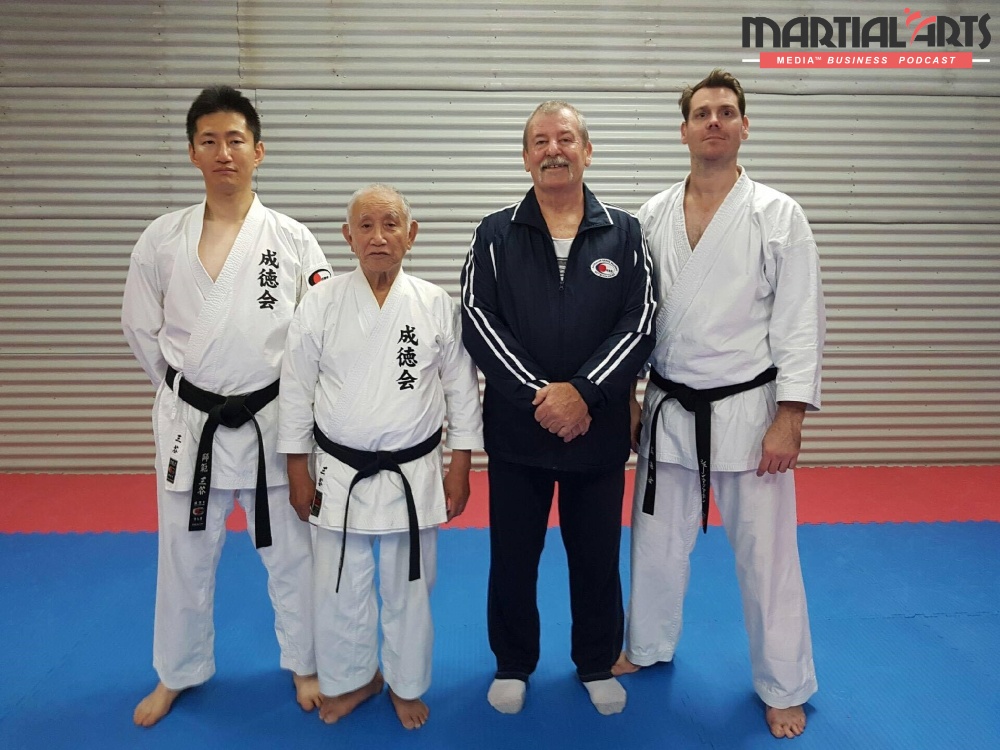
CHEYNE: Exactly, yeah. If you're really passionate about your martial art, then you can dedicate yourself to it. And that's what I like to consider, I've dedicated myself to karate and that's how I'm able to offer so many different classes.
GEORGE: Cheyne, let's talk about a term that gets thrown around. We've touched on it. It gets thrown around a lot, McDojo, what comes to mind or what triggers you when you hear the term McDojo?
CHEYNE: Yeah. Well, I think those who point those fingers, I know some people would think that I'm a McDojo, for sure. But generally they're the people who are teaching karate from the seventies who haven't evolved their own karate. They're still practicing and teaching the same karate as what they learnt and really they have no idea what karate really is and what karate isn't. They're not doing the research. They don't know what they're doing. They don't know why we're punching to the body, why we're blocking to the body.
They're teaching stuff that they don't understand the biomechanics, where I've put in the time and the research and so has my father and they're teaching karate from the seventies and still charging five bucks a class, where the karate that they're teaching is really poor, is bad karate. And they're the ones who think they're doing traditional karate, where in fact, they're doing modern sports karate.
Whereas guys like myself are teaching traditional karate because we understand where karate comes from. We understand the changes that karate has had. We understand what karate looked like before and what karate looks like now, and they're teaching karate from the seventies, eighties, and nineties, whereas they're really just teaching modern sports karate from Japan, instead of understanding what karate is.
And for them to accuse me of being a McDojo, Well, I've spent many, many hours and many, many dollars on understanding what karate is and what karate isn't.
And these guys are at a local hall, on a dirty floor, teaching two hours a week, karate from 1975 and parading around like they're a Japanese sensei and, “Don't question authority,” all of these sorts of things, and really they are the McDojo because they are actually… If you're going to say a McDojo, it's an awful term, but they're not progressing their karate.
They're still doing karate from 30, 40, 50 years ago. Whereas the Japanese instructors, who taught that karate, didn't understand karate, didn't understand what they were teaching because their instructor didn't know what they were doing.
Whereas now we can go back through and we're researching… I'm not going to say we, not me, I'm following the guys who are doing all the research, but these guys are understanding what karate is and what karate isn't and how karate has evolved in the last 30 years.
Whereas these guys are still doing the same poor karate that they were doing without understanding biomechanics, how the body moves, how the body doesn't move. They're still teaching sports karate, thinking they're teaching traditional karate, where it's not. My karate has evolved, their karate hasn't.
GEORGE: It's a word that I hate and I don't understand because I see it begins and for me, it comes from a place of jealousy. It's this place of, well, would you value this person's karate or martial arts more just because if they were less successful than you? Okay, the karate is great and successful, oh, but now they make more money than me, now they're a McDojo and they're selling out. What a lot of crap, selling out.
Or it angers me a bit because is that what we teach people in life? If martial arts is the vehicle to improve people and improve your wellbeing way beyond what you do on the mat then is this what we have to teach people? Well, here we talk about… Well, we don't talk about bullying, it's not accepted and we are anti-bullying and we do this, but between each other, between our peers, it's okay to bully each other.
It's a bit of this hypocrisy in a way, yeah, don't bully, we'll teach you how to physically not bully, but mentally we'll tear everybody else down around us and that's okay because they are McDojo.
CHEYNE: I'll tell you where it stems from George, it's insecurity, insecurity about their own karate or their own chosen martial art. If you are secure in your karate or secure in your martial arts and if you understand what you're doing, then you don't even worry about what other people are doing. You just focus on what you're doing. But for those who rant and rave about this McDojo, this guy's making too much money, that guy's making too much money.
Obviously this is a crap dojo because you are so insecure about the karate that you teach, if you've got to pull everybody down and that's what a bully is, they're insecure.
GEORGE: Bullying and martial arts, who would have thought?
CHEYNE: Well, I was bullied by somebody not long ago, a very well-known person, because obviously they are insecure about something that I said and they're insecure about it. And I called the person on it and they didn't hear anything else, but it's just because people are insecure, they're jealous.
GEORGE: Let's talk about different pricing and positioning. In our Partners program, we have a new section which we call Onramp, which it's basically the first 10, 11 steps that a school owner's got to walk through before sort of graduating into the real group, into the official Partners group.
Until a few months back, everything was marketing and how do we get the marketing right? But right now, the first thing that we actually care about is mindset. Mindset and turning time-based pricing to value-based pricing. And what I mean by that is, a lot of school owners would come into the group and they feel like they're still charging per class. It's per class or it's for this time. And it's like, well, that's what the value is based on the time.
And a big focus for us is to shift from that to value-based pricing, which is, well, it's not about the time, it's about what do they get in that time and what do they get in the time as in a full experience. And that is how you are able to raise your prices, because it's almost not what you teach, it's how you frame what you teach and realize that the outcome exceeds just the physical aspect of martial arts.
Let's talk, just in current times, I don't know when you're listening to this or if you listen to this in current times, but with the state of the world going from lockdowns, in and out of lockdowns, and maybe you're not in lockdown right now, but who knows, there could be one coming or you've just come out of one. But with that happening, a lot of martial arts school owners are reverting to online classes.
And some are cool with that and some are not. And I find it fascinating that just speaking to some school owners, they lock in down for two months, they've got a 90% retention. Students are getting value.
They still get value from being in the club. They're not physically in the club, but they get value from being in the club and being in the community. And that is a big step for realizing what your value is, because it proves that the outcome that you get from martial arts and being in the martial arts environment, exceeds way more from being on the mat and how you punch, how you kick, how you do chokes, how you do submissions, whatever type of style you do.
Let's talk about your process. Let's break it down. You're a martial artist, maybe you're a traditionalist, and you've only got a few students and you want to take a step up, you've got to grow, you know you got to scale but you may be in that situation where you got one or two classes. You don't have the funds potentially to grow and scale and so you've got to make changes to your pricing.
How did you go about changing your pricing to a direct debit, more sort of a recurring basis and raising your prices? Because you were saying earlier that you're actually the most expensive in the market. What was the process that got you there?
CHEYNE: I doubled the fees and those who stayed with me paid double the fees and those who didn't, left, but it was a very small percentage of people that left. I doubled the fees.
GEORGE: What conversation did you have with yourself when you doubled the fees? How did you combat the little voice that was fighting you, saying that there's no way I can double my fees, that's unethical, I'll be labeled a McDojo, everybody's going to call me a scam artist? My peers are going to look down at me and call me a scam artist or whatever.
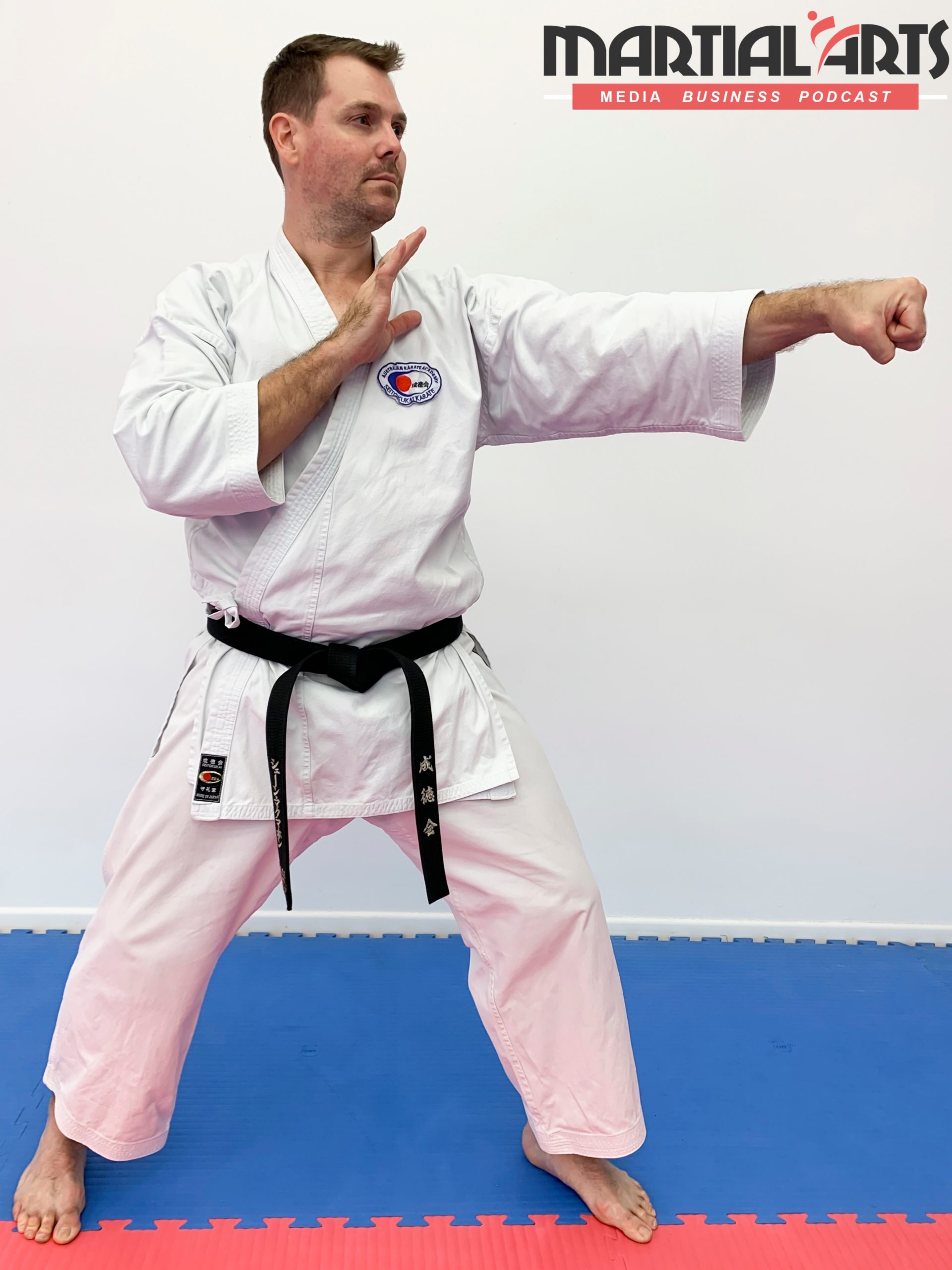
CHEYNE: McDojo is such a bad term. People consider anybody who charges fees a McDojo. If you charge for a grading, you could be considered a McDojo. Lose that mindset of being a McDojo. Well, I suppose everybody is a McDojo, who charges money and everybody charges money.
There's not a martial art club in the world that I know of, that wouldn't charge money. If you're doing it at home, I can understand maybe not charging, but if you've got to pay rent, you've got to charge money.
It could be considered, everybody's a McDojo. The mindset I had was, well, I'm worth it. The 35 years I've been involved in karate. And when I say involved, it's not just once or twice a week for an hour or two. It's all day seven, eight hours, thinking about karate, reading about karate, writing about karate, talking about karate, doing podcasts about karate, doing videos, traveling, seminars, the amount of money that I've spent over the years, it is huge.
I think that my time is worth this. And if you think it is too fantastic, you pay your money. If you don't, there's a local community dojo down the road, happy to send you there. The mindset was, I don't really care what other people think of me, I'm comfortable with what I really like, I'm happy with where I am.
I believe my karate is fantastic and I believe we offer a fantastic experience, quality karate, quality experience, and these things. And I charge what I think I'm worth, I stopped caring what people thought of me a while ago, mate.
But honestly, it did take a while. It did take a while, if I'm going to be honest, it took a while for me to get over the fact that what people would think of me. Now, I don't care.
GEORGE: It's interesting because I remember, it's a story I did tell a lot, but the first time we had a conversation was when you had 110 students and the dojo was flooded. What I found interesting from that story was that you listened to this podcast, it was episode number 44.
If you ever want to listen to it and you sent me a message straight after and said, “Hey, I did this thing that you said on the podcast, and I've got new students or inquiries.”
I can't remember at the level the result was. And then we got talking and 110 students, you took a gamble on yourself and said, well, I'm going to do this thing. And we jumped in, we created some really good offers. Something we probably never spoke about was mindset, but we just put the right offers in place. And before you knew it, it was 200 students.
And then before we knew it, there were 300. And now you're sitting at a very sweet spot of 340, 50 students. And you've got a wait list. Am I correct?
CHEYNE: Yep.
GEORGE: Yep.
CHEYNE: We have a waitlist, yep. For all programs, yep.
GEORGE: How has your pricing changed from Cheyne that was at 110 students to 340, 50 students?
CHEYNE: Well, I'm able to employ more people, more instructors, which makes it easier for me, which gives me the time to make the classes better, and make the karate better as well. Instead of taking every single class, I can spend more time with my family, whether they like it or not.
It allows me breathing space as well. Having more instructors gives me breathing space to make my karate better, so I can learn more stuff.
We have a separate black belt class where I teach. I love that class, the black belt adult’s class, where all we do is the secrets of… No secrets, but all we focus on is all the stuff that I've learned, new stuff, more, Kobudo, more weapons, all the stuff that probably separates my karate from other people's karate, because I've put the time in. I've been everywhere, I've learnt from many people.
That extra time allows me to make sure that the karate that I'm giving is the best quality traditional karate. Our karate is based on Okinawan karate and we have a Japanese sensei as well, who's 88. Time is limited, but it's based on karate that was done a hundred years ago. We include throws, joint locks, take downs, the pressure point strikes, as well as weapons, as well as [kakia], which is all different drills, two person drills, kumi kata, sticky hand drills, all of these things that I'm able to teach into my system.
And I'm not bogged down by teaching kata, hundreds of kata. That's a total karate podcast, but these are things that I've already done. I did those things 20 years ago and now I'm able to teach the best karate that I can. But the biggest thing is, it's not like I'm making a million dollars. I wish I was, shit, who wouldn't?
GEORGE: And you should, for the value that you provide.
CHEYNE: Yeah. Well, it also allows me to employ people, instructors, and to give back to those as well. We have a group of maybe 10 instructors who teach and help out. And yeah, it allows me that as well. It's not like I'm making all the money, because again, if I did all of the classes and all of those sorts of things, then I would make all the money, but I couldn't develop my karate and I couldn't give back because I'd be out there for four hours, five hours a day teaching classes, instead of being able to understand more about karate.
GEORGE: Yeah. You're building a legacy and you're transferring knowledge. Knowledge is not just ending with you, it's actually going through you and you're empowering the next generation.
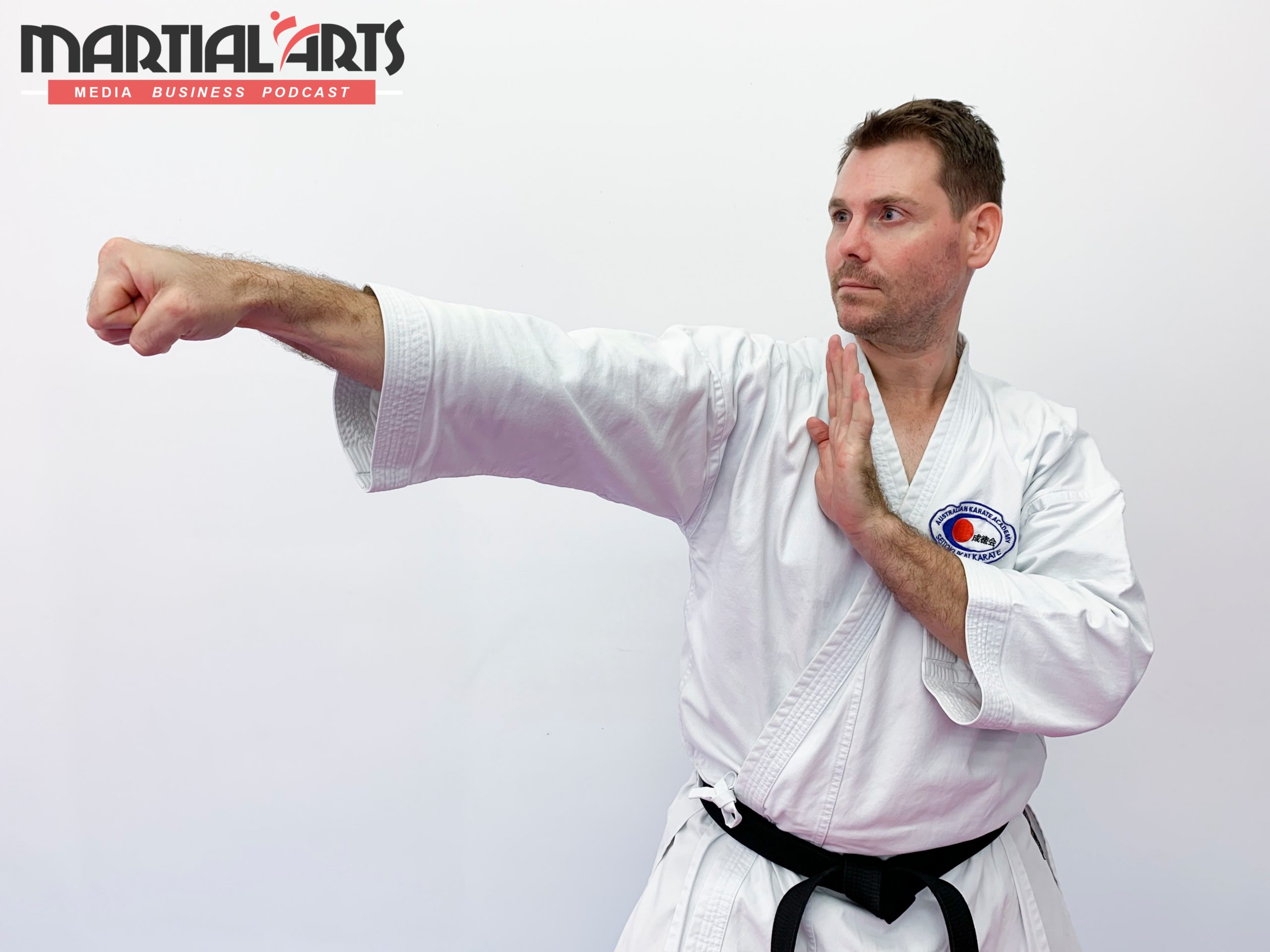
CHEYNE: Yeah. Building the legacy. That's a huge thing that I'm trying to do. Build a legacy for my son as my father did for me. That's the biggest thing I want is to build a legacy where karate is the best possible. And hopefully my son takes up karate, whether he does it…
Whatever he does, that's cool. I'm not going to put any pressure on him. And my dad certainly didn't put any pressure on me either, but the karate that my son is going to continue, is hopefully better than mine, because I know mine is much better than my dad's, but don't tell him.
GEORGE: I'll be sending this over to Bob. I'm sure he'll be listening anyway.
CHEYNE: I wouldn't say it's better than my dad's, but we do more and more than my father did, because I've got another 30 years on top of him. In 30 years, when I'm his age, I will be 30 years further than he was.
GEORGE: Got you. Yeah. I guess if we had to sort of start wrapping things up, if you're really stuck with your martial arts business and you're not moving forward, then maybe take this episode on board. If things triggered you that we spoke about and we were talking before this and we went deep into a lot of aspects, but if anything triggered you then have a look at your… I guess, have a look at your relationship with money.
Two things from this podcast that have stuck with me, one was, first time I spoke to Kevin Blundell and Kevin runs a multi-billion dollar organization. I think there were 24 or 25 locations, I can't keep up. But one thing that he mentioned to me that really stuck out was the minute you charge a dollar, you're in business and you've got an obligation to fulfill and deliver value.
If you're charging nothing, great, and that's great. If that's what you do, and a lot of people do that and this is not about discriminating or looking down, if that's a choice and that's something that you want to do and you provide value to your community in that way. But the minute you charge a dollar, you are in business. Now this is where you've got to decide, well, how much value you can deliver for a dollar versus a hundred versus a thousand versus whatever, however your fee structure works.
And then the second thing was, Kylie Ryan, who is a mindset coach who I really respect. And we just spoke in the midst of the whole pandemic. And one thing that she pointed out was, when people pay, people pay attention. And when people are paying more for a service, there is a subconscious value to it, that you appreciate it more and that you are more committed to it because if you are showing up and it's just costing you five bucks, you might not be that committed to show up.
But if it's 500 bucks or whatever the fee is, you might look at it a bit differently and you might value it differently. And that's probably the same from your parents, from parents with kids in martial arts as well.
If you feel you are stuck, then have a look at your surroundings, who are you listening to? Who's influencing your thinking about money and maybe unfortunately, that is someone real close to you, within your family, or maybe that is someone higher up in martial arts that you aspire to and they are the best and sincere and authentic martial artists. But their relationship with money is crippled and you are forced to live under that same mindset and thinking, and if, unless you deal with that issue, you can have all the marketing solutions in the world and get all the students you want, they're going to be leaving and it's not going to result to success.
CHEYNE: Yeah. I think there's a lot of jealousy. A lot of people don't understand what money is and how money works. And when somebody else has more money than them, people get jealous and point fingers and don't really understand what it takes. And it could also be that your sensei has a, as you said, bad relationship with money because their sensei had a bad relationship with money and didn't understand.
GEORGE: Yeah. Perfect. Just to wrap things up. Two things, if you need any help with any of that, do reach out to us, martialartsmedia.com. You can contact us from there. And if you want to learn more about karate, Cheyne, since the last time we spoke, Karate Over Coffee podcasts, tell us about that.

CHEYNE: I love karate and I'm a big fan of coffee. It's a podcast where I talk about all my experiences in karate. Interview people, it's all karate based, everything is based on karate, obviously, that's why it's called Karate Over Coffee. And yeah, we talk about lots of things, dojo management sometimes as well. Talk about competitions. Talk about what kata and what karate is and what karate isn't. And yeah, I only really scratched the surface so far. We've got some sweet merchandise there.
GEORGE: I can see, if you're watching this, Cheyne completely outdone me with my plain black shirt and, oh, that's it. We've got a mug and we got a shirt, all right, I'm going to need to up my game. That's for sure. Where can people tune in to Karate Over Coffee?
CHEYNE: Well, you can go straight to the website, karateovercoffee.com. I got all the episodes there, or you can follow us on iTunes or Spotify. However you listen to your podcasts, there's a YouTube channel as well, just type in Karate Over Coffee, yeah, we've got some shirts available karateovercoffeeshop.com. We're everywhere.
GEORGE: It's everywhere. Perfect. Cheyne, thanks so much for being on again.
CHEYNE: No worries.
GEORGE: We might break another record and have you on for episode four of the…
CHEYNE: Yeah. When I hit 500 students, for sure.
GEORGE: When you hit your 500 students. Okay cool. The half… I almost called it the half century mark, the half… The 500 mark.
CHEYNE: 500 mark, yeah.
GEORGE: Cool. We'll call this part three of 20 of the Cheyne and George sub-division podcast overlaps over the Martial Arts Media™ Business Podcast versus Karate Over Coffee. And I think this is where we got to call it quits.
CHEYNE: Thanks for having me, George.
GEORGE: Thanks, Cheyne. Speak soon.
CHEYNE: Cheers, mate.
GEORGE: Cheers.
Here are 3 ways we can help scale your school right now.
1. Download the Martial Arts Media™ Mobile App.
It's our new private community app exclusive for martial arts school owners, with top courses, online events, and free resources to help grow your business. Click here to download for iPhone or Android (any other device).
2. Join the Martial Arts Media™ Academy Membership and become a Case Study.
I'm working closely with a group of martial arts school owners this month to get to 100+ students. If you'd like to work with me to help you grow your martial arts school, get started with our 7-day risk-free trial – Click Here
3. Work With Me and My Team Privately.
If you would like to work with me and my team to scale your school to the next level, fill out the form and apply HERE … tell me a little about your business and what you would like to work on together and I'll get you all the details – Click Here
Enjoyed the show? Get more martial arts business tips when you subscribe on iTunes for iPhone or Stitcher Radio for Android devices.
***NEW*** Now available on Spotify!


